- Online Courses
- Useful Info

How to Become a Deckhand on a Superyacht: A Step-by-Step Guide
Home Blog How to Become a Deckhand on a Superyacht: A Step-by-Step Guide
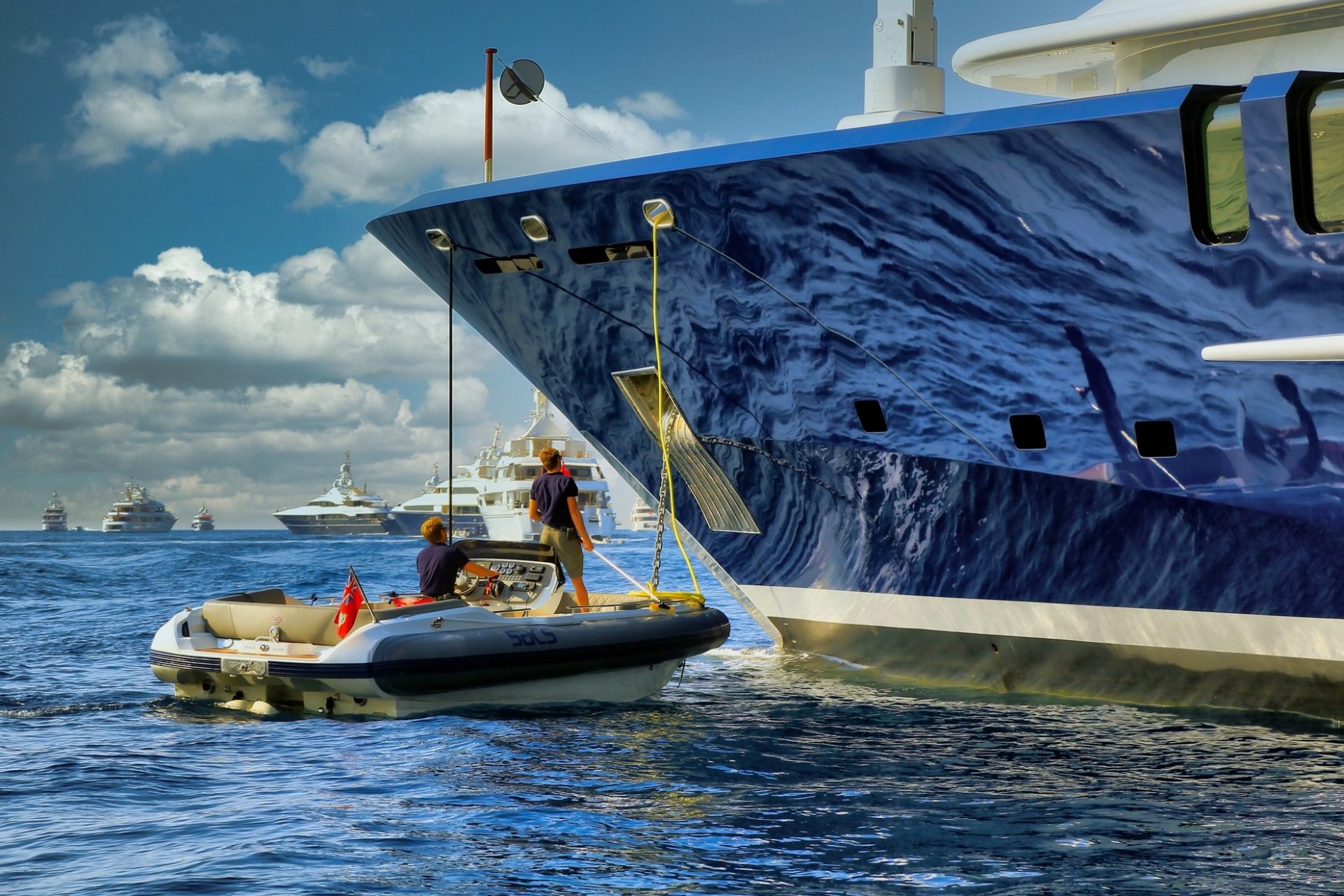
Embarking on a career as a deckhand on a superyacht offers an unparalleled blend of adventure, luxury, and the opportunity to travel the world. Whether you’re drawn to the pristine beauty of the open sea or the meticulous care of magnificent vessels, becoming a deckhand could be your gateway to an extraordinary lifestyle. This guide provides a comprehensive overview of how to start your journey, covering everything from necessary qualifications to finding work.
What Is a Deckhand?
A deckhand is an essential crew member on Superyachts, responsible for maintaining the vessel’s exterior, assisting with docking, and ensuring safety equipment is up to par. Beyond upkeep, deckhands play a significant role in guest experiences, facilitating water sports activities and managing tender operations to transport guests. With a focus on detail, physical stamina, and a commitment to service, deckhands are key to both the operational efficiency and the luxury experience on board. This position offers a unique blend of adventure and professional growth for those passionate about the industry.There is a clear pathway leading deckhands from their starting point as a junior deckhand to becoming a captain which we will cover later on.

What Does a Typical Day Usually Look Like For a Deckhand?
A typical day for a deckhand varies from boat to boat and depends if there are guests on or off.With guests on , the deck crew usually start early in the morning going around the yacht to make sure all the furniture is uncovered, decks are clean , paint is shiny and everything is looking presentable for when the guests come out.The deck crew will set up the watersports equipment and launch tenders into the water to have them ready on standby for guest operations. Throughout the day the deck crew will be on standby waiting for guest requests taking them in tenders ashore ,exploring or to carry out watersport activities which could include jetskis, sea bobs, kayaks, surfing , wakeboarding, flight boards , snorkelling, diving and much much more.
What Qualifications Do I Need To Become a Deckhand On a Superyacht?
- STCW Basic Safety Training : The cornerstone certification for maritime professionals, covering safety protocols, firefighting, and sea survival techniques.( Mandatory )
- ENG1 Medical Certificate : A health certification confirming you’re fit for sea duty.( Mandatory )
- Powerboat Level 2 / IYT Small Powerboat & RIB Master : Often required for handling the yacht’s tenders and smaller boats. ( Some yachts mave have this as a mandatory requirement )
- Superyacht Deckhand Training : ( Not mandatory but highly recommended )
- LROCP (Long Range Operator Certificate of Proficiency) VHF/HF Marine Radio Operator’s Certificate Course ( not mandatory but recommended )
Where Can I Complete The Qualifications?
STCW 95 – https://www.superyacht-crew-academy.com/
ENG1 Medical Certificate: – https://www.gov.uk/government/publications/mca-approved-doctors-overseas/mca-approved-doctors-overseas
Powerboat Level 2 / IYT Small Powerboat & RIB Master: https://www.superyacht-crew-academy.com/courses/tender-driving-iyt-rib/
Superyacht Deckhand Training: https://www.superyacht-crew-academy.com/courses/superyacht-deckhand-course/
For AMSA Medical: https://www.sonichealthplus.com.au/services/legislative-medicals/maritime
LROCP (Long Range Operator Certificate of Proficiency) VHF/HF Marine Radio Operator’s Certificate Course : https://www.superyacht-crew-academy.com/courses/vhf-marine-radio-operators-certificate/
What Transferable Land Skills Are Good To Have For a Superyacht Deckhand?
Carpentry: Carpentry skills are indispensable for maintenance and custom fittings, ensuring the yacht’s aesthetic and structural integrity. Your ability to craft and repair woodwork is crucial for preserving the luxury and bespoke nature of superyachts.
Videography & Photography: In an era where digital presence is key, your videography and photography skills can be used to document voyages and market the yacht’s charter services, enhancing its appeal to potential clients.
Diving: Diving skills open up underwater maintenance and exploration services, adding an exclusive experience for guests and ensuring the safety and cleanliness of the yacht’s hull.
Fishing: Knowledge of fishing can enhance the guest experience, offering personalised excursions and the thrill of catching fresh seafood for onboard meals.
Swimming & Surf Instructing: Proficiency in swimming and the ability to instruct guests in water sports like surfing enrich the array of activities offered, ensuring guests have a memorable and active stay.
Fitness Instructor: As a fitness instructor, you can lead personalised workout sessions, helping guests maintain their fitness routines while enjoying the luxury of the yacht.
Driving Boats: Skill in driving tenders and other small boats is essential for transporting guests, leading excursions, and ensuring the smooth operation of all water-based activities.
Painting/Varnishing: Expertise in painting and varnishing is crucial for the upkeep of the yacht’s appearance, protecting it from the elements and maintaining its value.
Watersports Instructor
Watersports instruction encompasses teaching and guiding guests in activities such as jet skiing, wakeboarding, kiteboarding and paddleboarding. For superyacht crew, being skilled in watersports instruction not only enhances the guest experience by offering fun and engaging activities but also ensures safety and confidence in the water

Can Deckhands Have Tattoos?
The yachting industry values professionalism and a certain standard of appearance. While visible tattoos may not be a deal-breaker on all yachts, they can limit your job prospects. It’s advisable to be upfront about any visible tattoos when applying for positions.
Each yacht has its own unique culture and policies, particularly when it comes to tattoos. While some yachts are more lenient, embracing both small and large visible tattoos, others may enforce strict policies against them. It’s important to be transparent about any visible tattoos you have. However, there’s no need to disclose tattoos that are not visible.
Is It Hard Being a Deckhand?
It’s not all watersports and driving multimillion-dollar tenders , there are long days of work , loads of physically demanding work and a lot of job/yacht-specific skills to learn which only comes with experience working on Superyachts.There will be a lot of working outdoors in hot weather, a lot of yacht maintenance & cleaning.There will be a lot of hard work however there are so many rewarding experiences and memories that outway by far all the hard work.Make sure you have a can-do, positive attitude and don’t be afraid to help other departments on the yacht if you have spare time , it goes a long way.
How Much Do Junior Deckhands Earn?
Salaries for deckhands can vary widely based on the yacht’s size, the vessel’s itinerary, and the deckhand’s experience.
Junior Deckhands : Starting Salary: Junior deckhands, who are just beginning their careers in the yachting industry, can expect to earn between $2,500 and $3,500 USD per month. These entry-level positions provide the foundational experience necessary for a successful career at sea.
Experienced Deckhands : Salary Range: As deckhands gain experience and demonstrate their skills, their earning potential increases. Experienced deckhands can expect to earn between $3,000 and $4,500 USD per month, depending on the yacht’s size, the complexity of the itinerary, and the specific duties they are tasked with.
Lead Deckhands : Salary Insights: Lead deckhands, who have additional responsibilities and may oversee junior deckhands, can see their salaries increase to between $3,500 and $5,000 USD per month. Their role is more demanding, requiring not only a thorough understanding of deck operations but also leadership skills.
Bosuns: Earning Potential: Bosuns, who are responsible for supervising the deck crew and maintaining the exterior of the yacht, can earn between $4,000 and $6,000 USD per month. Their salary reflects their critical role in ensuring the vessel is in pristine condition and their ability to manage the deck team effectively.
Officers: Salary Range: Officers on yachts have significant responsibilities, including navigation and safety management. Their salaries can range from $5,000 to over $8,000 USD per month, depending on their rank, the size of the yacht, and their specific duties. Chief officers, who are second-in-command, can expect salaries at the higher end of this range.
Captains: Top Earnings: Captains, who have the ultimate responsibility for the yacht, its crew, and its passengers, can earn from $7,000 USD to well over $20,000 USD per month. The captain’s salary is influenced by the size of the yacht, the complexity of the voyages undertaken, and their level of experience.
Factors Influencing Salaries
Yacht Size: Larger yachts typically offer higher salaries due to the increased workload and expertise required. Experience and Qualifications: Crew members with more experience and specialized qualifications can command higher salaries. Charter vs. Private: Crew on charter yachts might earn more due to tips from guests, whereas private yacht crew salaries are often more stable but without the added bonus of tips.
What Does The Career Progression Look Like To Go From Deckhand To An Officer ( MCA Route ) ?

How Do I Find Superyacht Job Position Listings?
The best place to look is on crew agency websites or job search platforms like Yotspot which has a large number of job listings you can look through, create a profile and update your account with your CV and all your certificates then you will be able to apply for jobs.
Below is a list of almost all the crew agencies from around the world that you can sign up with to increase your chances of landing a job. It is a lot of work creating profiles and uploading documents, however, it could increase your chances of being connected with the right job at the right time.
DOWNLOAD THE CREW AGENCY LIST

Are There Facebook Groups That Post Job Listings?
Yes, there are multiple facebook groups that post job listings all the time , it’s great to sign up with as many as you can to increase your chances of finding a job. Please note: make sure to clean up your Facebook profile before signing up to the groups as future employers may see your profile and you want to make a good first impression.
Some groups include:
Antibes Yacht crew
Palma Yacht
Australian Pacific Yacht crew

How To Become a Deckhand In Australia?
The process involves specific training and certifications, especially due to the requirements set by the Australian Maritime Safety Authority (AMSA). Here’s a step-by-step guide to help you navigate your way into this career:
1. Understand the Training Requirements
The foundational step to becoming a deckhand in Australia is to complete the necessary safety training. While the training is broadly similar across different countries, there are specific requirements for those intending to work on commercial vessels within Australia:
- STCW Basic Safety Training: This is a mandatory course for anyone working at sea, covering essential safety procedures, firefighting, first aid, and personal survival techniques. In Australia, the AMSA requires crew members working on commercial vessels to have an AMSA-compliant Certificate of Safety Training (COST).
- General Purpose Hand: The Australian General Purpose Hand Near Coastal Certificate I in Marine Operations qualification will enable you to work as a deckhand on Australian Registered commercial or private vessels
- AMSA Medical: If you wish to work on commercial vessels in Australia you will need an AMSA medical to ensure you are fit to work at sea you can find centres to complete the medical here – https://www.sonichealthplus.com.au/services/legislative-medicals/maritime
2. Choose the Right Certification for Your Career Path
Depending on where you intend to work, you’ll need to choose the appropriate certification:
- For Private and Foreign-Flagged Vessels in Australia: If your goal is to work on private or foreign-flagged vessels within Australia, you can use an MCA-approved STCW 95 certificate issued by the Marshall Islands, which SCA (Superyacht Crew Academy) offers. This certification allows you to work on private and foreign-flagged vessels in Australia, providing a pathway to gain experience before potentially heading overseas.
- For Commercial Vessels in Australia: If you aim to work exclusively on commercial vessels in Australia, such as charter boats or tour boats, you should obtain an AMSA Certificate of Safety Training (COST). This certification is specifically designed to meet the requirements for crew members on commercial vessels operating within Australian waters.
3. Gain Experience
- Start Locally: Gaining experience in Australia before heading overseas is highly recommended. Working locally allows you to understand the industry better, build your resume, and develop the necessary skills in a familiar environment.
- Consider Temp Work: Temporary positions can provide valuable experience and insight into the life of a deckhand. These roles can also offer networking opportunities, which are crucial in the yachting industry.
4. Plan Your Career Path
- Decide on Your Long-Term Goals: Whether you wish to explore international waters or prefer to stay within Australia, your career goals will influence the type of experience and certifications you should pursue.
- Continuous Learning: The yachting industry is constantly evolving, so staying updated with the latest safety protocols, regulations, and skills is essential for your career development.
Once you have completed your training sign up to as many Australian agencies as possible to increase your chances of landing a job , you can find a list of the Australian agencies below.
MARINE JOBS AYC MYS SUPERYACHT CREW CHAPMAN YACHTING SUPERYACHT CREW INTERNATIONAL CREW PACIFIC CHAMPION CREWING
What Are The Next Steps To Becoming a Deckhand?
Now you are ready to travel and become a deckhand on superyachts it is time to get certified, get all your qualifications mentioned earlier below:
- LROCP (Long Range Operator Certificate of Proficiency) VHF/HF Marine Radio Operator’s Certificate Course
Figure out where you want to look for work and head there to be based in the yacht hub to be around for interviews and networking.
Create your CV/resume and sign up to crew agencies online , creating your profiles and applying for jobs.
Attend job interviews and hopefully land your first deckhand role ( make sure to practice interview questions beforehand )
We interviewed a Superyacht captain with some really helpful advice on what to do and what not to do in interviews you can check it out below
EXPERT JOB INTERVIEW ADVICE FROM A SUPERYACHT CAPTAIN
Becoming a deckhand on a superyacht is an exciting path that offers more than just a job – it’s a lifestyle. With the right qualifications, a proactive approach to job hunting, and a commitment to continuous learning and improvement, you can embark on a rewarding Superyacht career. The world of superyachting awaits those with the courage to pursue their dreams of traveling , making good memories and friends.
Ready to Travel The World As a Superyacht Deckhand?
We have the necessary courses you need to start as an entry-level deckhand, head over to the link below for some more course information.
STCW 95+10 – https://www.superyacht-crew-academy.com/courses/stcw-95-10/
Superyacht Deckhand Course – https://www.superyacht-crew-academy.com/courses/superyacht-deckhand-course/
Superyacht Deckhand Package – https://www.superyacht-crew-academy.com/courses/superyacht-deckhand-package/
GPH ( General Purpose Hand ) – https://www.sydneymaritimeinstitute.com/deckhand-gphcourse
Best of luck with your career as a Superyacht Deckhand!
Latest News
Stay up to date.
Sign up to stay informed on our courses, dates and industry information, work opportunities and more.

Superyacht Crew Academy Provides training and certification for people who wish to work on Superyachts anywhere in the world and within the Australian Maritime Industry. Legal Name: Club Sail Pty. Ltd. Trading as: Superyacht Crew Academy Registered Training Organisation no. 91462
Unit 25a/5 Ponderosa Parade, Warriewood, NSW 2102, Australia.
+61 2 9979 9669
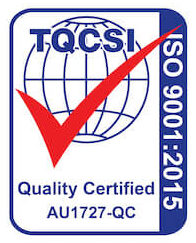)
A Deckhand in the Maritime industry plays a pivotal role in the operations of marine vessels, contributing significantly to their safe and efficient running. This entry-level position is integral on board, with responsibilities that encompass a variety of tasks essential for the daily management and maintenance of the ship. Deckhands are vital for ensuring the vessel's cleanliness, security, and readiness to navigate or dock. They frequently act as the primary workforce carrying out physical tasks under the guidance of senior officers and the Captain.
- General Job Description
- Average Salaries in 2024
- Free Job Post Template
- Examples of Good Interview Questions
Frequently Asked Questions
Key responsibilities.
The primary duties of a Deckhand include, but are not limited to, the following:
- Maintenance of the decks, superstructures, and docks: Regular cleaning, painting, and general upkeep to ensure all areas are free from hazards and maintained according to maritime standards.
- Handling lines and rigging: Assisting in the mooring and unmooring of the ship, handling ropes, wires, and riggings essential for the docking processes.
- Safety and emergency procedures: Participating in safety drills and being familiar with the use of emergency equipment like lifeboats and firefighting gear.
- Assisting in navigation: Serving as a lookout, communicating potential hazards, and helping in steering the vessel under the supervision of the ship’s officers.
- Loading and unloading cargo: Assisting with the loading and unloading operations to ensure cargo is handled efficiently and safely.
- Customer service: Providing information and assistance to passengers on board in situations where the vessel carries passengers.
Education and Certification Requirements
To qualify as a Deckhand, a candidate typically needs the following education and certifications:
- High School Diploma or equivalent: Fundamental education is necessary for understanding instructions and performing calculations involved in the day-to-day duties.
- Basic Safety Training: Candidates must usually complete a certified Basic Safety Training course, which includes personal survival techniques, fire fighting and fire prevention, elementary first aid, and personal safety and social responsibility as per the Standards of Training, Certification and Watchkeeping (STCW) convention.
- Maritime Security Awareness or Vessel Personnel with Designated Security Duties (VPDSD) certificate: Depending on the vessel and its operations, additional security training may be required.
- Physical fitness: Deckhands must often pass a physical exam and drug testing due to the physically demanding nature of the job.
- Experience on boats: While not always mandatory, experience in boating or previous maritime experience is highly beneficial and often preferred.
This position requires a proactive attitude, physical dexterity, and strong teamworking skills, as deckhands must work effectively with other crew members in various environmental conditions. The role offers a unique opportunity to build a career in the maritime industry, with pathways to advanced navigational roles for those showing aptitude and dedication.
Deckhand salaries in 2024
How much can Deckhand make? It depends on their location and experience. Below you can find an average salary in the US and UK to have an idea.
In the United States, Deckhands make $32,778 per year on average. The range is $21,751-$43,805 based on seniority and location of the individual.
In the United Kingdom, Deckhands make £26,136 per year on average. The range is £17,136-£38,125 based on seniority and location of the individual.
Salary information for Deckhand is not available.
Free Job Description Template
Company introduction.
Welcome to [COMPANY NAME], a leading player in the maritime industry, committed to excellence and innovation in every wave we conquer. Established in [YEAR], our fleet operates across [KEY LOCATIONS], delivering top-notch maritime services. At [COMPANY NAME], we value integrity, teamwork, and a commitment to safety as we continue to expand our horizons.
Job Description
[COMPANY NAME] is seeking a dedicated and skilled Deckhand to join our vibrant team. This role is crucial for the smooth operation of our vessels, providing an opportunity to contribute directly to our efficiency and safety standards. Ideal candidates will demonstrate strong teamwork, a robust understanding of maritime operations, and an unwavering commitment to safety protocols.
Responsibilities
- Handle the lines to moor the vessel to wharves, docks or other vessels.
- Perform daily maintenance and cleaning of the vessel to ensure operational readiness.
- Assist in loading and unloading of cargo, checking and securing loads as necessary.
- Conduct regular checks of the vessel’s decks and superstructure.
- Ensure compliance with all safety procedures and use of Personal Protective Equipment (PPE).
- Assist with navigation and watchkeeping duties under senior crew guidance.
- Participate in emergency drills and respond to emergencies following the vessel’s protocols.
Requirements
- High School Diploma or equivalent.
- Valid Merchant Mariner Credential (MMC) and Transportation Worker Identification Credential (TWIC).
- [INPUT: Minimum years of] experience in maritime operations preferred.
- Strong physical stamina and the ability to work in various weather conditions.
- Excellent teamwork skills and the ability to follow instructions promptly.
- Knowledge of maritime safety procedures and basic first aid.
- Willingness to undertake varying shifts, including nights, weekends, and holidays.
Perks and Salary
At [COMPANY NAME], we appreciate our employees and their contributions by offering competitive salaries starting from [INPUT: BASE SALARY] and a comprehensive benefits package including health insurance, paid time off, progression opportunities, and a supportive work environment. Join us and grow alongside a team committed to excellence.
How to Apply
If you’re ready to set sail with [COMPANY NAME], send your resume and cover letter to [INPUT: EMAIL ADDRESS]. Make sure to highlight how your experiences align with the responsibilities and requirements of this role. We look forward to having you onboard and navigating together towards success!
Interview Questions for Deckhands
Can you describe your previous experience working on a deck.
This question is crucial to understand the candidate's background and familiarity with the responsibilities of a deckhand. Previous experience can illustrate their competency in handling the practical duties required on a vessel.
How do you perform under pressure or in stressful situations?
Given the potentially hazardous nature of maritime environments, it's important to gauge how a candidate manages stress and maintains composure. Their response will provide insights into their resilience and problem-solving skills.
What skills do you believe are essential for a deckhand, and how have you demonstrated these in past roles?
This question helps identify whether the candidate possesses critical skills for a deckhand, such as knot tying, equipment maintenance, and safety procedures. It also allows the candidate to share specific instances where they effectively utilized these skills.
Deckhands often work in teams. Can you share an experience where you had to collaborate closely with others?
Teamwork is a vital aspect of maritime operations. This question seeks to understand the candidate's ability to cooperate and communicate effectively with others, which is essential for maintaining safety and efficiency on board.
Describe a time when you had to adapt quickly to a change in your work environment. How did you handle it?
Adaptability is important in the maritime industry due to the dynamic nature of the environment. This question aims to explore the candidate's capacity to effectively adjust to changes, whether they're related to weather conditions, crew changes, or job duties.
Can you provide an example of a time you implemented a new method or technology on the deck to improve operations?
This question assesses innovation and a proactive approach, important for improving safety and efficiency onboard. A candidate's response can highlight their initiative and willingness to adopt new practices that benefit maritime operations.
Why do you want to work with our company, and how do you see yourself fitting into our culture?
Assessing company fit is essential to ensure the candidate aligns with the company’s values and practices. This question also helps to determine the candidate's motivation and their long-term interest in contributing to the company.
Where do you see your career in the maritime industry going in the next 5 years?
Understanding the candidate's career aspirations can help determine whether they view this role as a long-term commitment or just a stepping stone. This insight is valuable for planning future training and development investments by the company.
What is a Deckhand?
A deckhand is a crew member aboard a ship, boat, or barge who is responsible for performing a variety of tasks to ensure the vessel operates smoothly, efficiently, and safely. These tasks include handling ropes and moorings, maintaining the cleanliness of the vessel, assisting in navigational watches, and participating in safety operations.
What qualifications are required to become a Deckhand?
While specific requirements can vary by employer and vessel type, typically a high school diploma or equivalent is needed. Training or certifications such as STCW (Standards of Training, Certification, and Watchkeeping for Seafarers), a Boating Safety Certificate, or a Merchant Mariner Credential (MMC) are highly beneficial. Physical fitness and swimming skills are also essential.
What does a typical day for a Deckhand look like?
A typical day for a deckhand can vary greatly depending on the type of vessel and the voyage. Generally, duties may include cleaning and maintaining decks, superstructures, and bridge areas, securing ship equipment, handling lines and ropes during docking, assisting in navigation watch, and participating in emergency drills and procedures.
Are there any career advancement opportunities for Deckhands?
Yes, with experience and additional training, deckhands can advance to higher positions on board such as Bosun, Mate, or even Captain. Many deckhands choose to enhance their qualifications by obtaining additional certifications and licenses, which significantly aids in their career progression.
What skills are essential for a successful Deckhand?
Essential skills for a deckhand include strong communication, teamwork, physical endurance, manual dexterity, and problem-solving skills. Deckhands must also be vigilant, adaptable to changing conditions, and capable of complying with safety regulations.
What are the working conditions like for a Deckhand?
Working conditions for a deckhand can be challenging. They often work in all weather conditions and at all hours, which can include nights, weekends, and holidays. The job requires physical labor and long periods of time away from home, especially on deep sea vessels or long river journeys.
Is there any required safety training for Deckhands?
Yes, safety training is crucial for deckhands. This includes Basic Safety Training (BST) which covers personal survival techniques, fire prevention and firefighting, elementary first aid, and personal safety and social responsibilities. Additional specialized training may be required depending on the vessel's operation.
What types of vessels employ Deckhands?
Deckhands are employed on various types of vessels including cargo ships, fishing boats, tugs, ferries, cruise ships, and yachts. The specific duties and responsibilities may vary with the type of ship and the nature of its journey or operations.
How can one find job openings for a Deckhand position?
Job openings for deckhand positions can be found through maritime job boards, shipping company websites, crewing agencies, and maritime academies. Networking with maritime professionals and attending job fairs are also effective strategies for finding employment in this field.
Similar job titles
- 🇺🇸 $52,982 Not available $40,208-$75,561 -
- 🇬🇧 Not available -
Housekeeping Supervisor
- 🇺🇸 $40,409 Not available $27,100-$56,744 -
- 🇬🇧 £23,500 Not available £21,000-£26,000 -
Content Writer
- 🇺🇸 Not available -
- 🇬🇧 £29,090 Not available £23,783-£35,000 -
Power Market Analyst
- 🇺🇸 $98,946 Not available $70,000-$108,000 -
- 🇬🇧 £37,228 Not available £37,228-£37,228 -
Foremen & Line Supervisor
Cad engineer.
- 🇬🇧 £31,906 Not available £28,500-£34,621 -
VP of Real Estate Operations
- 🇺🇸 $247,713 Not available $183,019-$312,693 -
- 🇬🇧 £61,434 Not available £41,188-£81,680 -
Masonry Workers
- 🇺🇸 $53,588 Not available $27,500-$79,676 -
Flight Test Engineer
- 🇬🇧 £56,036 Not available £54,424-£58,438 -
Looking for a career change?
.png)
- BuildStream for Companies
- BuildStream for Agencies
- BuildStream for Job Seekers
- Job Descriptions
- Career Guides
- Job Description Generator
- Interview Questions Generator
- Boolean Search Generator
- Brokerage New Construction How to Buy How to Sell
- Yacht Fleet Yacht Catalog Charter Marketing Destination Guides
- Financial Services Payroll & Accounting Payroll Service Process Logistical Support Admin Services Crew Admin
- Job Descriptions Crew FAQ
- About Sitemap
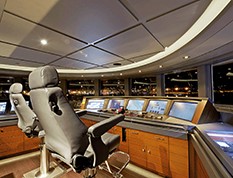
- Yacht Department Directory, About Deck Department, Deck Department
- Deck Department
About the Deck Department
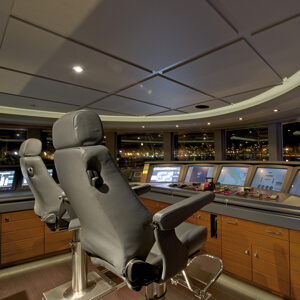
The deck department on board a superyacht is a dynamic, multifunctional department that involves duties ranging from skippering an Atlantic crossing to taking guests on jet-ski tours of some of the most beautiful hidden bays in the world. The work is extremely varied and an assortment of skills are necessary to be successful.
This department is responsible for the following aspects of the yacht operation:
- owner communication
- financial administration
- bridge operations
- exterior repair and maintenance
- tender and water sports operations
- safety procedures
The development path for an individual wishing to pursue a career on deck is very specific and requires achieving certain milestones. As an entry-level deckhand, focus should be on learning as much as possible from senior deck crew. Daily duties will include cleaning, polishing and exterior maintenance. As ordinary as these jobs may seem some days, the importance of learning good techniques and basic skills is crucial to continued progression in the superyacht industry. At the beginning of your career it is important to document all the skills you learn as well as your sea time.
As you graduate from rookie status after one year onboard yachts, the next step will be to develop boat handling skills and pursue your first deck license which might be a 100T USCG or MCA Y200. You will also continue to learn more advanced maintenance and repair techniques. This is the stage in most deck careers where the decision is made to pursue yachting as a long-term profession, investing the time and money necessary to progress.
Continuing to build your career as a seafarer with three or more years of experience will likely involve obtaining more advanced licenses. The educational requirements are demanding and expensive – they are an investment in your future. However, it is important to balance time at school with continued experience on board yachts, refining your skills and building sea time. During this stage of your career, you will become more involved in bridge operations and navigation.
The role of a captain aboard a luxury yacht is one of the most fulfilling jobs in the world, and with this opportunity comes great responsibility. The captain is ultimately responsible for the safety, well-being and experience of every crew and guest on board. In addition to managing the deck team, they also possess primary responsibility for financial administration and owner communication. Captains are professional seaman, expert problem solvers and are able to manage every situation with poise and exemplary leadership.
Career Path
Senior master, junior captain, first officer / chief mate, officer of the watch, junior deckhand.
Essential Guides
Ocean Mapping
New to Yachting
Yacht Deckhand jobs
Your new adventure awaits.

Explore more yacht roles
Other essential guides.

Mandatory certificates

What you need to know about B1/B2 visa

Download yacht crew CV templates

How to write a memorable yachting CV

How to prepare for a yacht interview?

What are the two main yachting seasons?

Big yacht crew hubs you should know about

Is yachting the right choice for me?

Yacht crew salary guide
A Yacht Deckhand is an entry-level position for those looking to work as a part of the Deck crew team onboard a yacht.
Deckhands are an integral part of the yacht crew in the day-to-day running of the yacht. They are responsible for the daily maintenance of the yacht, involving hands-on tasks to ensure it remains in immaculate condition for all guests at all levels of the yacht.
Depending on the size of the yacht, there may either be only one Deckhand onboard or a team of Deckhands, all working to clean and polish the exterior to maintain the highest of standards. Deckhands are generally supervised by either a Lead Deckhand, Bosun, or a Chief Officer, depending on the size and structure of the yacht.
What does a Deckhand do? | Deckhand Job Description
A Deckhand’s main responsibility is to execute any task their senior gives them, in a timely and precise manner. These tasks predominantly comprise of maintaining the exterior of the yacht.
Daily tasks vary and can include wash-downs, polishing, varnishing, teak cleaning, sanding, painting, and general maintenance. They may also be asked to drive or assist with the yacht’s tenders.
The responsibilities of a Deckhand include:
Regular wash-downs of the yacht
Deck scrubbing
Stainless polishing
Cleaning of deck lockers and bilges
Performing general maintenance duties such as sanding, painting, varnishing, etc.
Assisting with docking operations and anchoring
Assisting guests as required during water sports
Driving state-of-the-art yacht tenders
Soft and hard skills required to be a Deckhand
As an entry-level position, a yacht Deckhand job does not necessarily require any previous yachting experience, but it does require patience and a positive mental attitude.
The competition for Deckhand positions is often very fierce so having any extra skills can really make a difference. Tender driving skills, carpentry, water sports, videography and mechanical knowledge can all help one get ahead of the competition so it's strongly advised to point them out on the CV.
On a personal level, a yacht Deckhand should be sociable and show a fondness for working as part of a team. They are often sporty, athletic people who enjoy being outdoors and are ready for new challenges and adventures.
The skills of a successful yacht Deckhand include:
Ability to take direction
Good work ethic
Physical fitness and strength
Positive attitude
Ability to learn on the job
Good eye for detail
Varnishing skills
Painting skills
Tender driving skills
Knowledge of water sports
Mandatory certificates needed to work on board a yacht
All crew members regardless of position and seniority need to have a valid STCW Basic Safety Training certificate, along with a recognised Seafarers medical certificate, the most popular being the ENG1 which is issued by an MCA (Maritime and Coastguard Agency) professional medic.
Without these two certificates, it is not possible for crew to work on board a yacht and a Recruiter will not be able to assist you in finding work onboard a yacht. For more information about mandatory certificates please visit our Mandatory Certificates Guide .
Are you ready to secure a Deckhand position on board a yacht?
Become a member of YPI CREW and connect with our recruiters so they can guide you through your job search.
Each of our recruiters is specialised in crew placement for a particular department and they will do their best to get you an interview on board a yacht. They will also advise you on how to best present your experience and skills and prepare for a yacht job interview.
YPI CREW TEAM
Ypi crew recruiters in charge of deckhand recruitment.

Fiona Murray
Head of Bosun and Deckhand Department

Alexandra O’Connell
Bosun and Deckhand Recruitment Specialist
Let’s get started. Call us on +33 (0)4 92 90 46 10 or email us.
Our mission, vision and values, mlc 2006 compliance, essential guides, yacht crew positions.
Chief Officer
Second Officer
Third Officer
Chief Engineer
Interior Crew
Head of Service
Head of Housekeeping
Specialist Positions
Spa Manager
Spa Therapist
Personal Trainer & Yoga Instructor
Hairdresser
Mandatory Certificates
B1/b2 visa information, how to write a memorable cv, how to prepare for an interview, yachting seasons, yacht crew salary guide, is yachting the right choice for me, cv templates, ocean mapping, new to yachting.
+33 (0)4 92 90 46 10

How to Become a Superyacht Deckhand
In order to work onboard a superyacht you must complete the following steps:.
- Learn About Deckhand Duties
- Understand How The Deck Structure Works
- Complete Deckhand Training
- Complete "How To Work On A Superyacht Steps"
- Learn Additional Skills
- View Current Deckhand Job Vacancies

1. Learn about deckhand duties
Before looking for a job as a superyacht deckhand, it is important to have a good understanding of the duties associated with the role. It is a physically demanding position that requires determination and hard work. Working in a team while learning from experienced crew members is the key to becoming a successful deckhand.
Duties change depending on the yacht's schedule. This results in a wide range of responsibilities with emphasis on the cleanliness of the vessel, tender driving, lookout duties and general maintenance.
Find out more about the role of a deckhand

2. Understand the deck structure
A deckhand is the lowest-ranked member of the deck team. When starting out, it is essential to have a good sense of situational awareness while learning from others wherever possible. Respect the higher-ranked crew and always do your best to fulfil the requests to the absolute best of your ability. Ask questions and ensure that you operate in a manner that is safe. The deck structure varies depending on the size of the vessel. The duties and responsibilities of a solo deckhand/mate on a small vessel will be different from that of a deckhand in a larger team.
Find out more about the structure of the deck department
3. Complete Deckhand Training
There are certain training courses that all superyacht deckhands have to complete (and pass). In addition to the mandatory certifications & licenses, there are additional courses that may help you stand out amongst the crowd. Training courses are a significant investment and it is important to find a package that is best suited to your budget. My Crew Kit has broken down the training options below.
Find out more about deckhand training courses
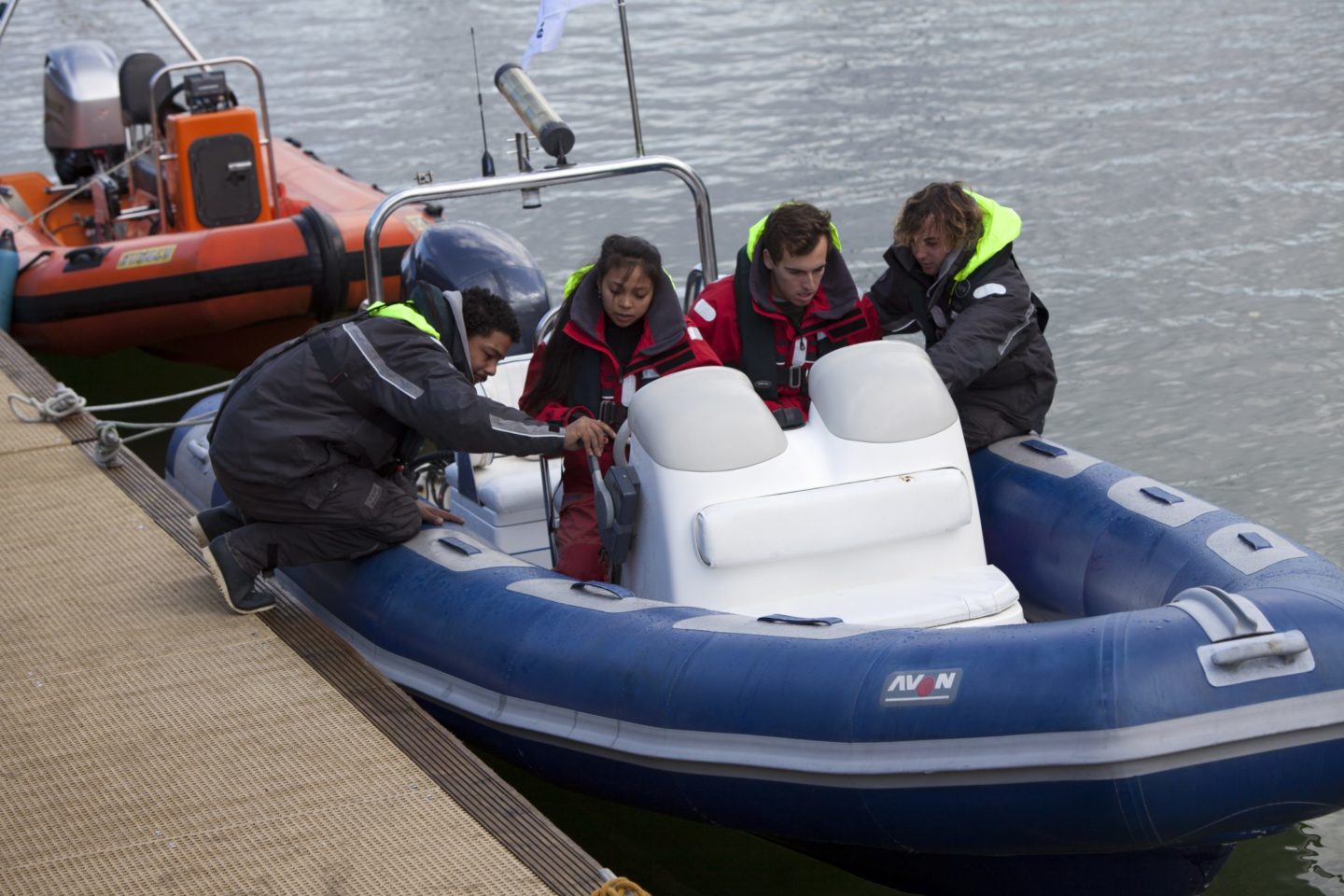
4. Complete the steps on how to get a job on a Superyacht:
Now that you have a good understanding of what being a deckhand is about, it is time to take action. You will only become employable once you hold the correct certification and documentation. Visas are required in order to travel to superyachting hubs where you will attend interviews. You need to register with crew agents and ensure that you are applying for jobs wherever possible. Building a positive reputation together with a strong network of individuals involved in the industry is key.
Follow the steps to start working on a superyacht
5. Find opportunities to learn additional skills!
There are a lot of experienced crew members to learn from and there is a lot of information on the internet to study (in addition to the courses that you study). Take advantage of every opportunity possible. Make sure you create a strong brand image of yourself and ALWAYS go the extra mile, even if there is no tangible benefit. Act in a professional manner and remember that every contact you make is a potential reference.
When an opportunity presents itself, make sure that you are prepared. Know your knots as well as your COLREGS. You will encounter situations where you can stand out or be seen as "another deckhand". Chief Officers and Captains are looking for well presented, professional crew who work well in a team and are willing to learn. Put yourself out there, work hard and most importantly enjoy what you do. Good luck!
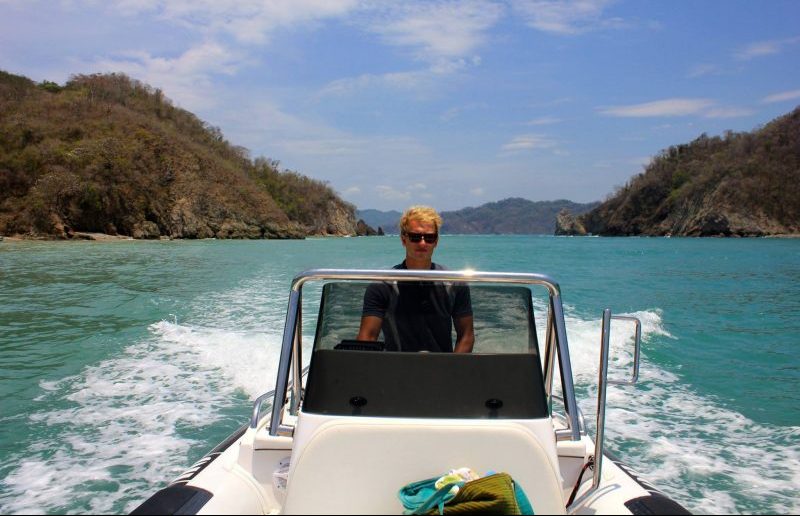
6. View the latest deckhand vacancies!
In order to find a job as a deckhand, you need to keep track of the latest deckhand vacancies. We have made this easy by displaying the latest deckhand jobs from various crew agencies.
View Deckhand Jobs
Username or Email Address *
Remember me Lost your password?
Username or Email
Get New Password

- Career Advice
- Salary Guide
- Digital Dockwalk
How to Get a Job as a Deckhand

Kate got her start in the yachting industry working as crew. She spent five years cruising the Bahamas, Caribbean, New England, and Central America, then segued that experience into a career in marine journalism, including stints as editor of Dockwalk and ShowBoats International .
A junior deckhand position is the first step in building a career that can lead to superyacht captain if you’re so inclined. Here is everything you need to know to get a foot on deck...
When you’re looking to break into the tight-knit superyacht industry with a job on deck, come prepared to work hard, take direction, and have a positive outlook.
The best candidates are keen and eager, says Marcy Laturno, executive crew placement director at Luxury Yacht Group in Fort Lauderdale. “All too often now we find entry-level crew come with their own list of demands: where the boat is going, how much time off they will get, what they expect to be paid as a minimum...”
Instead, approach your first superyacht deckhand position willing to learn and grow, and concentrate on completing a season or two on a yacht regardless of its program — private or charter, globe-trotting or more sedentary — and you’ll be on your way to your pick of positions.
What is a Deckhand?
A deckhand is responsible for cleaning and maintaining the exterior of the vessel. Led by the bosun, the deck team also assists in docking operations, launches and stows the tenders and toys , drives the tender, supervises guests’ watersports activities, and pitches in to help the interior crew after their duties are finished for the night.
Will Hollingshead, a first officer who has been hiring deckhands since his days as bosun and lead deckhand, says it’s important to have the ability to keep yourself motivated and working hard. “If I walk on deck and catch a dayworker or deckhand sneaking their phone back into their pocket or leaning back then I’ll let it slide, but if it’s multiple times a day then I’ll lose trust in that person.”
What Does a Deckhand do?
“Be prepared to clean, polish, clean, and polish some more,” says Erica Lay, director of placement agency El Crew Co in Palma de Mallorca.
How close it is to the start of a season will determine the type of work that needs to be done, says Hollingshead. “Mid winter in the Med, then you’re looking at opening up bigger projects; closer to the start of the summer it will be more teak scrubbing, stainless polishing and beautifying the yacht.”
When guests are not on board, “you will be doing the dirty work, especially if you’re junior,” says Madison Bailes, who has worked on deck of yachts spanning 116 to 350 feet. “You’re going to be cleaning the things that can’t be cleaned when the boss is on board: soaking/scrubbing cushion covers, ‘Flitz’-ing stainless, maybe detailing the engine room, paintwork, or if you’re really lucky, hanging out in a bilge,” she says with a smile. She describes this time as “chill” though — a regular eight-hour workday with a lunch break and maybe even a dock beer at the end of the day.
- Top 10 Deck Hacks for Crew
When the owner or charter guests are on board, it is a much longer and higher-pressure day. “The usual is a 13-hour workday, a three-hour break at one point and a longer eight-hour break for your main rest, though this differs from yacht to yacht,” Hollingshead says.
There is no such thing as a typical day with the boss on, Bailes says. “You could literally be in the water all day launching Jet Skis, tenders, paddleboards, doing fly-boarding and snorkeling, or you could be stood at the top of a gangway for hours watching the boss’s McLarens. I’ve done both and it all differs depending on your boat and your program.”
There will be a wider range of duties on smaller boats with fewer deckhands. On the largest superyachts, those in the junior positions may find themselves discreetly cleaning all day, while staying out of the guests’ way.
Who Does a Deckhand Report to?
On smaller yachts, a deckhand would report to the mate or directly to the captain. On larger vessels the bosun or lead deckhand is in charge of the deck team.
“The best people to work for are the ones who have the time and inclination to reach and train their junior deck crew, helping them learn how to paint, varnish, repair the yacht, etc.,” says Hollingshead.
What Qualifications do I Need to Become a Deckhand?
The prerequisites for any crew position are STCW Basic Safety Training and an ENG1 medical certificate. In addition, there are several qualifications that entry-level deckhand candidates can consider.
First of all, an RYA Powerboat Level 2 (PBL2) is what Lay calls “imperative” for working in the Med as it allows a crewmember to drive a tender in countries that require a certificate to operate small craft under 10 meters — which is most of Europe. International Yacht Training also has a course that satisfies this requirement called IYT Small Powerboat and RIB Master, which is MCA recognized.
Large motor yachts may require an MCA STCW95 certificate in Proficiency in Designated Security Duties, or PDSD for short. The one-day course is necessary for anyone with security duties on ISPS-compliant yachts, which are greater than 500 gross tons (roughly 55 meters and up).
- Everything You Need to Know About STCW Training
“Those (qualifications) are for starting out. Once a deckhand has a season or two or more under their belt and knows this is a career for them, I’d recommend they do Yachtmaster Offshore and consider looking into their EDH (MCA Efficient Deckhand), which must be held 18 months before going for OOW (Officer of the Watch),” says Lay.
In addition, Hollingshead adds, “Having a PWC license or even a PWC Instructor license is always a good short course to set yourself apart from the rest.” The RYA PWC license is a one-day course. It’s a prerequisite for the Instructor course, as is two years’ experience riding personal watercraft, which allows the crewmember to run the “RYA Introduction to PW Safety course” for guests on superyachts.
What Experience do I Need?
“Most jobs for junior crew I receive usually start with ‘must have at least a season’s experience,’ which is frustrating for the new crew to hear but sometimes we can get around that by demonstrating how transferrable their skills are from other industries or recreational activities,” Lay says.
Laturno also uses the term “transferrable” and gives some examples: “recreational boating backgrounds, skilled labor backgrounds, watersports experience, tender driving skills, to name a few.”
One way to break into crew work is by getting real-world experience in the maritime world, adds Hollingshead. “Go and get a job in a marina, work for a boat-building company, learn about teak, painting, epoxy, etc.
- 10 Tips for Newbie Deckhands
“There are two main work/life experiences that I value in a candidate,” he continues. “The first is any construction or building site experience. I grew up working on building sites with my dad and it teaches you about hard work, fixing things with the tools you have on hand, and also that most problems are solvable with a bit of forethought and working as a team. The second is anyone who has worked as a watersports instructor. I spent seven years as a windsurf/sailing instructor in Greece and Turkey before getting a job as a deckhand. When you’re hiring someone with that experience, you know they can drive a tender and that they’re comfortable on and in the water with your guests and their children.”
Bailes, who started her maritime career as a dive instructor, adds that any trade where you have acquired people skills correlates well in yachting, as does work involving cleaning, mechanics, and outdoor activities.
- How Dayworking Can Help Yacht Crew Break Into the Industry
How Much Does a Deckhand Earn?
“Starting pay for a junior deckhand in the Med is €2,500 (per month), with possibly more for skilled newbies, i.e. watersports instructors, so €3,000,” says Lay. Laturno at Luxury Yacht Group sees monthly salaries averaging $2,750 to $3,000 with the same amounts in euros.
For the ultimate answer, we turn to the Dockwalk Salary Guide , for which a dozen crew agencies around the world shared the salaries of the deckhands they placed. The numbers increase as the boat size does, and the range given for each size vessel spans various experience levels, so those just entering the industry should pay attention to the lower number. These start at $2,500 per month for boats under 80 feet, go up to $4,500 for yachts under 200 feet, and finally, $4,500 for yachts 200 feet and up.
While this may not sound like big bucks, keep in mind that a crewmember’s living expenses are close to zero so nearly all of your salary can be saved. In addition, charter yachts can offer some pretty lucrative tips on top of salaries.
P.S. A Side Note for Women
Yacht deckhand jobs have historically been dominated by men, but today more women than ever are starting their yachting careers on deck rather than inside, and gender should never be an obstacle.
Bailes, who joined the industry with a Yachtmaster license from her days on dive boats, still encountered yachts that wanted to make her a stewardess. “They see long hair and a pretty face and, boom, they want you in a skort cleaning cabins.
“While being a stew is an excellent career, if you want to be on deck, stand your ground and turn the job down if you have to,” she advises. “Do your Powerboat Level 2, not silver service, go for as many courses as you can and daywork as much as possible to gain experience. I know for a fact that I beat most guys to a job because my resume is stacked!”
More Career Guides:
- How to Get a Job as a Superyacht Captain
- Everything You Need to Become a Yacht Stewardess
- How to Land a Job as a Yacht Chef
- The Dos (and Don’ts) of Your First Crew Interview
More from Dockwalk
Most popular on dockwalk.

How To Become A Yacht Deckhand
If you are wondering how to become a Yacht Deckhand, then look no further.
Having been in the industry for 10 years, I know that becoming a Deckhand with no experience can be challenging.
My goal is to equip you with the knowledge and resources to secure your first job on a super yacht, regardless of your prior experience.
Table of Contents
What is a Deckhand?
A Deckhand is an entry-level role on a yacht, and their main responsibility is the maintenance and cleanliness of the exterior of the yacht.
As a Deckhand gains experience onboard a vessel they can work their way towards becoming the Lead Deckhand, Bosun, Chief Officer, and ultimately the Captain.
What is the Salary Range of a Yacht Deckhand?
The question of how to become a Yacht Deckhand is usually followed by what they earn.
A starting yacht based salary for a Deckhand can range from $2500 – $3500 depending on factors such as the size of the yacht and your qualifications and experience.
Additionally, if you work on a charter yacht you can expect to see tips of about $2000-$5000 per week of chartering.
Another important factor to consider is longevity onboard. Boats tend to reward longevity so on some vessels you can expect annual increases.

Roles and Responsibilities of a Yacht Deckhand
The primary role of a Yacht Deckhand is to clean and maintain the exterior of the Yacht. This can include a wide range of tasks such as:
- scrubbing teak
- equipment maintenance
In addition to cleaning and maintenance, a Deckhand will also assist with:
- mooring operations
- tender operations
- guest activities
- water sports
- bridge lookout
- any assistance required in the daily operations of the yacht.

Mandatory Qualifications for Becoming a Yacht Deckhand
If you are looking to become a superyacht Deckhand, you will need to have an STCW Certification and pass an ENG1 medical.
The STCW (Standards of Training and Certification of Watch keeping) is an internationally mandated course and a minimum requirement for anyone who wishes to work on a yacht. During the training, crew members will learn basic safety skills and acquire knowledge to effectively handle emergency situations onboard. The training will also cover basic safe working practices to ensure the safety of all crew members.
In 2010 the STCW convention added a new module requirement to the basic safety training, so ensure that you do the additional Proficiency in Security Awareness (PSA) module which takes one extra day.
This STCW course is comprised of 4 modules, takes 5 days to complete, and is valid for 5 years. The modules include:
- Personal Survival Techniques (PST)
- Fire Fighting and prevention (FFP)
- Elementary First Aid (EFA)
- Personal Safety and Social Responsibility (PSSR)

An ENG1 is a basic medical examination carried out by an MCA (Maritime Coastguard Agency) certified doctor, confirming that you are in a fit condition to work on a yacht.
Without passing this medical check, you will not be able to work on a yacht as a Deckhand.
Ensure you book your medical with an MCA-approved doctor .

Recommended Additional Courses for Becoming a Deckhand on a Yacht
It is important to note that the required deckhand qualifications may vary depending on the size and type of the Super Yacht and the flag state under which it operates.
Some super yachts may have additional requirements beyond the ones mentioned above.
Proficiency in Designated Security Duties (PDSD)
The PSA course has already been completed as a minimum requirement in your STCW course. However, crew members given designated security duties under the ship’s security plan must complete this PDSD course.
This requirement is for vessels that fall under the ISPS code (International Ship and Port Facility Security Code).

Power Boat Level 2
This yacht deckhand course is essential if you are seeking a qualification to operate yacht tenders. Doing this course is also the foundation for what you will be learning in courses to come as you climb the ranks and gain more certifications.
Another equivalent course is the IYT Small Powerboat & Rib Master which is also recognized by the MCA.
In this 2-day course, you will learn:
- Basic collision avoidance regulations
- Basic navigation, actions in emergencies
- Safety equipment
- Boat handling skills
- Berthing alongside
- Turning in a confined space
- Man-overboard drills

VHF Short Range Radio Course
The VHF radios are used on a vessel for communication between the main vessel and small crafts, other vessels, or land-based authorities within the area.
Therefore, if you have crew or guests out on the tender or beach, or if your vessel is coming into port, you will be using the VHF radio to communicate.
This is a required course for some of your upcoming certifications, so it is advisable to get it done now. It is also legally required to obtain this certificate on certain vessels if you are a crew member who will be using VHF communication.
In this one-day course, you will learn the correct voice procedure, the GMDSS system, the phonetic alphabet, emergency calls, and the DSC controller
Personal Watercraft License (PWC)
A personal watercraft refers to the Wave runners and Jet skis of a vessel. If you want to become a Yacht Deckhand, certain cruising areas will require you to hold this license in order to operate the Jet skis. Therefore it is recommended that all Deck crew members hold this license.
In this one-day course you will learn:
- Recovery skills
- Passage planning
- Decision-making
- High and low-speed riding skills
- Essential safety information
- Collision avoidance
- Orientation at sea

Recommended Courses to Consider as You Climb the Ranks
Mca yacht rating.
The Yacht Rating Certificate is required by Yacht Crew members to be part of the safe manning requirements of the vessel. There are 2 ways to attain this certificate as per the application form :
1. With a training record book
Applications for a Yacht Rating Certificate require at least 6 months yacht service, including 2 months actual sea service on vessels over 15m in load line length plus a completed Yacht Rating Training Record Book .
2. Complete a course
If you choose to complete a course, successful candidates will receive a Course Completion Certificate. They will then apply to the MCA, and obtain the MCA Yacht Rating Certificate after completing two months of sea service on vessels of over 15m in load line length. Course choices include:
- Watch Leader Certificate together with an RYA Competent Crew Certificate
- Day Skipper Certificate with an RYA Competent Crew Certificate and/or higher RYA Certificate
- Yacht Rating Course Completion Certificate
The benefit of holding this certificate is that it informs Captains that you have advanced deck skills. Additionally, this course is a good introduction for students who want to do the EDH (Efficient Deckhand Course).
This 5-day Training Course Covers:
- Navigational Watch Duties
- Life-Saving and Fire Fighting Equipment
- Code of Safe Working Practices
- Engine Watch Keeping Duties
- Pollution Prevention
- Knots, Bends, and Hitches
- Whipping and splicing
- International Safe Management Code
- Rules of the Road
- Lights and IALA A and B Buoyage system

Efficient Deckhand Course (EDH)
The importance of obtaining this certificate when you meet the pre-requisites is that you need to hold your EDH for 18 months before you can start your OOW course.
The Efficient Deckhand (EDH) course covers basic seamanship, tying of knots, and advanced rope work such as whipping, splicing, and rigging. It also teaches maintenance routines, steering, duties of the lookout, and the responsibilities of crew members under the Code of Safe Working Practices for Merchant Seamen.
This course is taught over 4 days with an oral and practical examination on the last day. I recommend you arrive with the ability to tie most of the standard nautical knots in order to get through the syllabus.
The pre-requisite for the course is to hold a Yacht rating with 6 months of seagoing service and a steering certificate.
Update your Yachting CV
It is crucial to have an impressive Yacht CV that catches the attention of the Captain and motivates them to read it thoroughly.
You may be wondering how to become a Yacht Deckhand without any prior experience. You will be competing with numerous crew members who may have an edge over you with their courses and experience.
Follow my Yacht CV guidelines to highlight your skills and attributes that will make you a standout candidate for the job.
Locate Yourself in a Yachting Hub and Apply for Deckhand Jobs
When you go dock walking , be sure to do your research before heading out. Take into account factors such as the time of year and port control regulations.
Some locations to consider include:
The best time of year to seek work in America would be starting in October for the Caribbean Season .
Please note that it is ILLEGAL to dock walk in America unless you are an American Citizen or green card holder. Fort Lauderdale is the best place to be based if you are legally allowed to dockwalk.
If you are looking to find work on a yacht for the Mediterranean yachting season , you should head over in March.
In Italy, you want to head to Monaco, Genoa, Loana, Imperia, or San Remo
In the South of France, Antibes is your best option, but others you could try are Toulon, Nice, Cannes, and La Ciotat.
If you head to Spain, you want to be based in Palma de Mallorca or Barcelona.
Sign up with Yacht Crew Agencies
You will want to sign up with as many crew agencies as possible if you want to become a Deckhand on a Yacht.
Here are some popular agencies you should sign up with to get started:
- Luxury Yacht Group
- Blue Water Yachting
- The Crew Network
- Cotton Crews
- Northrop and Johnson
Don’t forget to keep an eye on Facebook and other social media platforms for Deckhand job postings. Join yachting Facebook groups like Fort Lauderdale Yacht Crew, Palma Yacht Crew, Antibes Yacht Crew, and any others that may have Deckhand job opportunities available. Check these groups regularly to stay updated.
Gain Deckhand Experience Wherever Possible
Don’t be afraid to accept day work on boats of all sizes. Some day work may not be on your vessel size of choice, but you want to gain experience on deck regardless.
Be sure to work hard and impress the Captain and Crew, as you will be wanting a good reference from them.
Final Thoughts on How to Become a Yacht Deckhand
Never forget that every Captain was once a Deckhand…
Working out on deck can be tiring, and you’ll need to put a lot of personal time and money into your courses and certifications.
Enjoy the experience of being a Deckhand, all the fun, laughter, hard work, and challenges that come with it. The yachting industry is a worthwhile adventure, and becoming a Deckhand on a Yacht is just the first step in your journey to some epic opportunities.

Hi, my name is Lisa, a Chief Stewardess in the yachting industry with 10 years of experience, as well as 8 years of hospitality experience prior to that. Being in the yachting industry has been a whirlwind of adventure, growth, challenges and some of the best experiences of my life, and I am excited to share my knowledge and experiences with all of you.
What is a Deckhand?
A deckhand handles cleaning, basic maintenance, and cargo. It's an entry-level role in maritime work with room for career growth.
A deckhand is an entry-level position in the maritime industry. Deckhands play an essential role in the regular operations and maintenance on the ship or boat.
This article will cover what a deckhand is responsible for, and the process to get started.

Deckhand Responsibilities
Most of the deckhand responsibilities include ensuring everything on the vessel is clean and in good working condition. When you’re starting out as a new deckhand, you can expect to spend a lot of time cleaning, handling basic maintenance tasks, and keeping watch.
Deckhands work under the supervision of the vessel’s Deck Officers.
As you spend more time and gain more experience, you’ll take care of other tasks around the vessel.
The specific responsibilities also depend on the type and purpose of your vessel.
Some general responsibilities include:
- Securing cargo and gear.
- Standing watch underway and in port.
- Maintaining ship equipment and machinery on the decks.
- Maintaining deck surfaces and interior spaces.
- Assisting in operations like docking and undocking.
- Ensuring the safety of passengers and other crew members.
Working as a deckhand can be a physically demanding job, and you should expect to be on your feet most of the time. You may also be working long hours, and away from home depending on your schedule.
Certifications
Starting out in the maritime industry typically doesn’t require advanced education or years of experience.
It’s possible to start working as an uncertified/unqualified deckhand with little to no training. We always recommend this if you’re not sure about entering the maritime industry. Working as an unqualified deckhand will give you a taste of what it’s like before you invest your time and money into a formal maritime training program.
The entry-level position is called Ordinary Seaman, or OS. Becoming an OS is a fairly straightforward process. You’ll need to complete a few Coast Guard forms, get a TWIC , pass a drug test , and a general USCG physical exam.
You can read more about that process in this article: How to Become an Ordinary Seaman
If you have some experience and sea days, you can work your way upward to become an Able Seaman. As you spend more time in the industry and earn more certifications, you’ll have better career and pay opportunities.
General skills required
Working in the deck crew isn’t rocket science, and nearly all of your training will be on the job.
You can expect to be on your feet, moving around, and doing some physical work. Being in decent shape will definitely make your job easier.
Good communication skills are also needed in the maritime industry. You’ll usually be working with a team, but everyone is expected to pull their own weight. Understanding what’s expected of you is essential.
You’ll also want to audit your mental toughness. Working in this industry won’t be a walk in the park, especially when you’re coming in at an entry-level position. You need to be able to handle the hard work, being alone and possibly away from home, and stressful situations.
Career Path
If you decide to pursue a career in the maritime industry, there are many different paths you can take that all start with being a deckhand.
Inland and Near Coastal
Inland vessels travel on rivers, bays, and coastal waters. Near Coastal vessels stay within <200 nautical miles from shore. Inland or near coastal work typically means you’ll travel less and have less time away from home.
A lot of these vessels are smaller, but they still require deckhands with different qualifications depending on what kind of work they are doing.
Some Inland and Near Coastal vessels don’t always require you to have a USCG Merchant Mariner Credential (MMC) which is also called an entry level USCG license to be a deckhand. These include:
- Passenger ferries
- Smaller fishing boats
Other Inland and Near Coastal vessels typically require you to have a USCG Merchant Mariner Credential (MMC) which is also called an entry level USCG license and a TWIC to be a deckhand. These include:
- Support/Service vessels
Ocean-going vessels
Another option is to work on larger ocean-going vessels. This work comes with a much different opportunity and schedule. The ocean voyages can last weeks or months, so you can expect to be away from home more often. These vessels typically require you to have a USCG Merchant Mariner Credential or entry level USCG license and a TWIC.
These include:
- Cargo ships
- Cruise ships
- Research vessels
As you can imagine, the deckhand work on a cruise ship is much different than the deckhand work on a cargo ship. Cruise ship deckhands are working in customer service. On a cargo ship, deckhands are helping the other crew members.
You can get a job as an unqualified deckhand without years of training, but you will need to get your TWIC card to work on ocean-going vessels. Working in international waters also requires getting your STCW endorsement. Different STCW endorsements allow you to do a variety of jobs aboard merchant vessels.
Continued training and education
There are plenty of opportunities to add courses and certifications to your maritime resume. When you’re starting out as a deckhand, one of the most important things to get is more sea time. The more time you spend on the water, the more you’ll learn and the more opportunities you’ll have access to.
To become an Able Seaman, you’ll need a minimum of 180 sea days working in the Deck Department. You’ll also need to pass a written exam and practical demonstration requirements for Able Seaman and Lifeboatman . We recommend that you take a course at a USCG approved school for both Able Seaman and Lifeboatman.
There are also higher Able Seaman ratings. The highest of these is Able Seaman Unlimited, which requires 1080 days of seatime working on the Deck Department on Oceans, Near Coastal or Great Lakes waters.
As you can see, moving up the ladder in the maritime industry won’t happen overnight. There are great career opportunities, but they require hard work and patience. It’s recommended that you explore your options and decide which ladder you want to climb.
For example, a Wiper is an entry-level position. From there, you can work your way up to becoming a QMED (Qualified Member of the Engine Department) and work as an engineer on supporting the maintenance of the vessel's mechanical systems.
There are plenty of different entry-level careers, and many of them can start with becoming a deckhand and getting your first few years of experience. With this experience you can take advanced courses to work your way up to becoming a Captain on Smaller vessels and eventually Master Unlimited, which is the highest rank in the maritime industry.

We hope this made your life a little easier and if you have other questions the MM-SEAS team is always here to help!
MM-SEAS is free to use on your own and if you need some more personalized help you can upgrade to MM-SEAS Pro inside of the site.
No matter what, when you are ready to submit your application, you can choose to have the MM-SEAS staff create a perfect application, handle the USCG application fees and work with the USCG on your behalf to resolve any issues for a flat fee of $349 or you can choose to submit on your own.
Pro MM-SEAS members get access to unlimited live 1 on 1 calls with one of our USCG Licensing Specialists. We've found that answering questions live with screen sharing in a video call makes both of our lives easier. Pro MM-SEAS members can access these features inside of MM-SEAS under License Guidance.
Need to renew, upgrade or get your first USCG license? We're here to help.
About the author.

Nate has over 15 years of professional maritime experience and has hawsepiped his way to a 3rd Mate Unlimited Endorsement with full STCW compliance. He is proud veteran of the NOAA Commissioned Corps.

Impartial training and careers advice
Call us: +441983 280 641
+441983 280 641
- Deckhand Job Description & Salary
A Deckhand is a vital member of the yacht crew, who (among other tasks) is in charge of looking after the exterior of the boat.
A Junior Deckhand is generally an entry level position and it is likely to be your first role on board a Superyacht.
How much do you make as a Deckhand?
A Junior Deckhand salary will start from around €2,000 per month. A Deckhand with more experience could expect a salary of €2,500+ per month.
There are several factors determining a Deckhand’s salary including past experience, qualifications and extra skills.
Having qualifications such a Dinghy Instructor or Divemaster could make you more employable, especially on bigger yachts where they tend to have a lot of toys for the guests to play on. If you can provide an extra service, take guests for a dive as an example, may increase your overall salary.
Handyman and trade jobs can be incredibly useful too, so if you are a Mechanic, Carpenter, Electrician or Engineer and can demonstrate how your skills can be used on the yacht, then you may be able to negotiate a higher salary.
A Deckhands salary also depends on whether the Superyacht is chartered or privately owned. If you end up working on a charter yacht you are likely to receive tip. The tip is usually 10% of the overall charter fee, split equally between the crew.
If you work on a private yacht you may get ‘tipped’ or a bonus every 6 months by the owner. Also, if you work on a private yacht you will generally receive a higher basic income.
Remember, like many jobs your salary is reflective of the hard work you are expected to do. If you have friends who already work on yachts their Facebook pictures may seem like it’s all fun in the sunshine (sometimes it is), but there is a lot of hard work and long hours behind the scenes.
For all salaries on board a yacht – see our Superyacht Salary Guide .
What does a Deckhand do?
The job description of a Deckhand is to maintain the exterior of the yacht. Like a Yacht Stewardess your duties can vary on board and your daily tasks may change all the time.
As a Junior Deckhand, you will be expected to have the same skills and attitude as a Deckhand, you just have less experience. Deckhands and Senior Deckhands will have worked on larger boats for a number of years, and may have to manage the Junior Deckhands.
Daily tasks can include; wash-downs, polishing, varnishing, teak cleaning, sanding, painting and general maintenance. You may be asked to drive or assist on the yacht tenders.
Depending on the size of the yacht, you may be part of a team of Deckhands, or you could be the only one. Your daily tasks are likely to be given to you by the Bosun or First Officer.
During busy times you may even help other departments, for example, the Stewardesses may need a hand to prepare for guests or the arrival of the owners. So your tasks could even include arranging tables or serving meals.
Deckhands are expected to have some knowledge of how a boat operates and experience in navigation, VHF radio and engine maintenance. This knowledge is often demonstrated through the qualifications you can gain through various courses.
One route many people go down who want to start working on Superyachts is to complete a dedicated Deckhand Course. On these courses you will get all the necessary certificates and qualifications, which will put you in a beneficial position when applying for your first yacht crew job .
What qualifications do you need to be a Deckhand?
Alongside an ENG1 medical , an STCW Basic Safety Training certificate is needed to work on a commercial vessel. Other qualifications that are great for working on a yacht include:
- Superyacht Deckhand Certificate
- MCA Proficiency in Designated Security Duties (PDSD)
- RYA Powerboat Level 2
- RYA Personal Watercraft Course (PWC)
- RYA VHF Radio
- RYA Radar Course
- RYA Diesel Engine Maintenance
If you are interested in becoming a Deckhand on a superyacht, Flying Fish run Deckhand Courses throughout the year.
Related articles
- Seafarers Tax
Do I need to pay off my Student loan if I work on a Superyacht?
Good question! First, let me say that the information below is aimed at people who have studied in the UK and took out a Student Loan to cover course ...
Have I got the right experience to work in yachting?
If you’re thinking about working on board a Superyacht, we share the skills and experience you need and how to get into the yachting industry in thi...
Download – Ultimate Guide to Working on Superyachts
So you’re thinking about getting a job on a Superyacht? Having a career on a Superyacht is a dream job: it will change your life forever. You g...

10 Essential Skills for any Deckhand whilst Working on a Superyacht
A deckhand is an essential part of any Yacht crew team. Their primary goal is to make sure a yacht runs smoothly. Being a deckhand requires more than just being able to tie knots and look good in shorts. As a deckhand, you’ll have the opportunity to work on some of the most glamorous yachts in the world while traveling to destinations that most people only dream of. But what does a deckhand actually do? From cleaning and waxing to engineering and mechanics, there’s an impressive range of skills required for this job. Let’s take a closer look at what it takes to be a successful deckhand.
Cleaning / Washing Keeping the decks spotless will always be one of the primary duties of any deckhand. This includes washing down surfaces, scrubbing decks, and ensuring that all areas are kept clean and tidy at all times. Having a clean deck is essential for various reasons. Firstly, it helps with safety on board. A dirty deck can increase the risk of slips and falls, which can lead to injuries. Additionally, dirt can get into machinery and equipment, causing serious maintenance issues in the long run. Furthermore, a spotless deck will make a yacht look more inviting, which is crucial if you want to impress guests on board. It also means being proactive in your approach to maintenance so that you can catch potential issues early before they become bigger problems down the line.
Waxing / Polishing Waxing and polishing are other important tasks that need to be completed on a regular basis in order to keep the yacht looking its best at all times. This is often done by hand but can also involve using tools such as buffers or polishers depending on the job at hand.
Navigation Along with boat driving comes navigation skills which require knowledge of maps, charts, compasses, GPS systems, and other navigational aids in order to safely move from one point to another without getting lost or going off course.
Line Handling Knowing how to handle lines properly is key when mooring or docking a yacht as well as when launching tenders or water toys from the mothership. It’s important that deckhands understand how to secure lines correctly without damaging them or risking them becoming loose while underway.
Tying Knots While tying knots may seem like a basic concept, it’s actually quite complex when dealing with ropes and lines aboard a yacht due to their different sizes and uses as well as their various strengths and weaknesses under pressure or strain from wind or weather conditions etc… Knowing how to properly tie knots is vital for any deckhand who wants be successful.
Securing / Stowing / Covering Furniture As part of the regular maintenance procedures onboard any vessel it’s important for deckhands to safely secure furniture properly before getting underway so nothing shifts around during transit which could cause damage or injury should someone not be paying attention while walking around on board during passage time.In addition, they should know how to cover furniture outdoors when necessary such as during rain showers etc.
Detailing Detailing involves more than simply cleaning surfaces; it requires deep cleans using special products designed specifically for boats as well as buffing out scratches and dents with specialized tools such as buffers or polishers etc…Moreover, detailing can involve fixing and replacing any broken or worn-out parts of the yacht. A thorough detailing process can identify any issues with the yacht’s components, including lights, fittings, and hulls. With early detection and repair, deckhands can extend the yacht’s overall lifespan while ensuring the vessel is safe and running correctly.
Woodwork / Varnishing Wooden surfaces need regular care if they are going to maintain their original beauty over time; this usually includes sanding surfaces down before applying varnish so that it adheres better which then helps protect against moisture build-up over time etc…
Watersports/Fishing Being knowledgeable about watersports activities such as jet skiing, wakeboarding, snorkeling, kayaking etc is quite important for guest experience. Many clients enjoy participating in these activities while vacationing onboard luxury vessels.
Physical Strength/Stamina Last but certainly not least physical strength/stamina plays a big role in success onboard yachts as part of the Deck crew. Many tasks and responsibilities involved can require quite a bit of manual labour. So having a strong body alongside good stamina will help greatly in keeping operations running smoothly.
Working aboard yachts isn’t just about sunbathing on the bow; it’s hard work! There’s no doubt about it, being a successful deckhand requires an impressive range of skills including everything from cleaning decks and waxing polishing surfaces right through to water sports and mechanical engineering.
To make sure your efforts pay off you must have mental agility coupled with physical strength/stamina and always be ready to learn new skills! With a dedicated attitude, these skills will ensure you run the show like a pro! CLICK HERE to see the latest amazing jobs and training opportunities currently listed on Yotspot ! Good luck with your job search!
- Upcoming Events
- Past Events
- ACREW Online Events
- COVID Safety Protocol
- Crew Awards 2024
- Crew Awards 2023
- Crew Awards 2022
- Crew Awards 2021
- Crew Awards 2020
- Crew Awards 2019
- Crew Awards 2018
- Superyacht Business Awards 2023
- Superyacht Business Awards 2022
- Superyacht Business Awards 2021
- Superyacht Business Awards 2020
- Publications
- Recruitment

Yachts for Sale
Selling a Yacht
Tenders & Toys
Recent Sales

NEVER SAY NEVER AGAIN

Yachts for Charter
Destinations
Experiences
Charter Management
Charter Deals
Yacht Marketing
How to Charter

Superyacht Management
Crew Structure
Crew Management

THE WELLESLEY
Superyacht Construction
New Yachts for Sale
Yacht Design
Yacht Shipyards
Custom Construction
Built on Trust

Heesen 55m Steel

Benetti Oasis
Yacht Shows
News & Blog

Yacht Deckhand Jobs
If efficiency, organisation and the safe handling of a superyacht are all things that sound appealing to you, then perhaps you should consider a career as a yacht deckhand. An entry-level position on a yacht, this role can be seen as the first step to a long and fulfilling career working onboard yachts. Yacht deckhands are important crew members, as the role covers a broad range of tasks – from cleaning and maintaining the exterior of the yacht, to driving tenders and supervising guests during watersport activities and excursions on land. Depending on the size of a yacht, there are usually between one and ten deckhands, so being an abled team player, sociable and a hard worker are all a must!
Yacht deckhands roles are very rewarding and the perfect stepping-stone for a stable career in yachting. Once you have completed the STCW’95 Basic crew training, you can begin looking for a job as a yacht deckhand. Browse through our full deckhand job offerings for more information.
DUTIES AND RESPONSIBILITIES
As a deckhand, a lot of the daily duties and tasks include maintaining and overseeing the yacht’s exterior, washing and polishing it, learning more about yacht maintenance, safety operations and systems-line handling. Deckhands also assist the deck officer with any maintenance projects, such as sanding, caulking and varnishing. It is also up to the deckhands to accompany and supervise guests during watersports and water activities, drive tenders and assist with any additional tasks.
YACHT DECKHAND SALARIES
Deckhand salaries can vary slightly, depending on the size and type of yacht. Data shows that deckhands on a motor yacht earn between €2,000 and €3,000 a month, depending on the size and their experience. Deckhands working on sailing yachts may earn a bit less, between €1,800 and €2,900 a month.

Senior deckhand on a 35m Yacht

Junior deckhand on a 40m yacht

Deckhand on a 50m Superyacht

Female bosun on a private and charter yacht

Bosun on private 50m yacht

Lead Deckhand on a 50m private yacht

Junior Deckhand on 50m private yacht

Deckhand/Engineer

Deckhand/Stewardess on 35m motor yacht
Deckhand/steward.

Female Deckhand on 60m private Motor Yacht

A 60m is looking for a new Deckhand

YACHTS FOR SALE
YACHTS FOR CHARTER
CHARTER MANAGEMENT
+377 97 77 67 57
SEO by The Agency

Yachts for sale
Selling a yacht
Recent Sale
Charter Guide
Subscribe to our newsletter to receive our latest offers, news and the finest selection of superyachts.

Setting Sail to Success: A Guide to Becoming a Successful Deckhand and Building a Rewarding Maritime Career
- June 23, 2023
Imagine standing on the deck of a ship, feeling the ocean breeze on your face and the rolling waves beneath your feet, as you embark on an exciting journey across the vast seas. If this sounds like a dream come true, then a career as a deckhand might be the perfect fit for you. In this article, we will guide you through the essential steps to become a successful deckhand, from acquiring the necessary skills and qualifications to building your professional network in the maritime industry. We will also share valuable tips for landing your first deckhand job on a vessel and discuss opportunities for growth and development in this rewarding career. Lastly, we will address the importance of staying safe and adapting to life at sea as a deckhand. So, get ready to set sail on a thrilling adventure as we navigate the path to becoming a deckhand.
1. Essential Skills and Qualifications for a Successful Deckhand Career
Embarking on a career as a deckhand requires a specific set of skills and qualifications to ensure success in this demanding profession. One of the most crucial abilities is having a strong work ethic, as deckhands often work long hours in challenging conditions. Additionally, being a team player is vital, as deckhands must collaborate with other crew members to maintain the vessel and ensure smooth operations. Physical fitness is also a significant factor, as the job entails heavy lifting and manual labor. Furthermore, possessing excellent communication skills and a keen attention to detail will help you excel in this role.
When it comes to qualifications, obtaining a STCW (Standards of Training, Certification, and Watchkeeping) certificate is essential for working on commercial vessels. This internationally recognized certification covers basic safety training, first aid, and firefighting. Additionally, having a Powerboat Level 2 license or a Yachtmaster qualification can be advantageous, as it demonstrates your competency in operating small vessels. While there are many pros to a deckhand career, such as the opportunity to travel and work in a dynamic environment, it’s essential to consider the cons, such as the physical demands and long hours away from home. Ultimately, a successful deckhand career requires dedication, hard work, and a passion for the maritime industry.
2. Acquiring the Necessary Training and Certifications for Deckhands
Before you can begin your journey as a deckhand, it’s essential to acquire the appropriate training and certifications. Many maritime schools and training centers offer courses specifically designed for aspiring deckhands. These courses typically cover essential skills such as knot tying, line handling, safety procedures, and basic navigation. Additionally, you may want to consider taking specialized courses in areas such as firefighting, first aid, and personal survival techniques.
When it comes to certifications, there are a few key ones that you’ll need to obtain to work as a deckhand. These include:
- STCW (Standards of Training, Certification, and Watchkeeping) Basic Safety Training: This internationally recognized certification covers basic safety training in personal survival techniques, fire prevention and firefighting, elementary first aid, and personal safety and social responsibilities.
- ENG1 Medical Certificate: This certificate confirms that you are medically fit to work at sea and is required by most employers.
- Proficiency in Designated Security Duties (PDSD): This certification is required for crew members with specific security responsibilities on board a vessel.
Once you have completed the necessary training and obtained the required certifications, you’ll be well-prepared to start your career as a deckhand. Networking and gaining practical experience through internships or entry-level positions will also be crucial in helping you secure a job in the industry. Remember, becoming a successful deckhand takes time, dedication, and a willingness to learn and grow in your role.
3. Building Your Professional Network in the Maritime Industry
In order to become a successful deckhand, it is crucial to build a strong professional network within the maritime industry. This can be achieved by following these steps:
- Attend industry events such as conferences, workshops, and seminars to meet like-minded professionals and learn about the latest trends and opportunities in the maritime sector.
- Join professional associations and organizations related to the maritime industry, as they often provide networking opportunities and access to valuable resources.
- Utilize social media platforms like LinkedIn to connect with professionals in the industry and showcase your skills and experience.
- Consider volunteering or interning with maritime companies or organizations to gain hands-on experience and make valuable connections.
- Don’t be afraid to reach out to professionals you admire for advice or mentorship, as they can provide invaluable insights and guidance on your career path.
By actively engaging in these networking activities, you will be better positioned to find job opportunities and establish a successful career as a deckhand in the maritime industry.
4. Tips for Landing Your First Deckhand Job on a Vessel
Securing a position as a deckhand on a vessel can be a challenging yet rewarding experience. Networking is crucial in this industry, so make sure to attend boat shows, yacht clubs, and marinas to meet potential employers and other professionals in the field. Additionally, consider joining online forums and social media groups related to the maritime industry to expand your network and stay informed about job opportunities.
Obtaining relevant certifications can significantly increase your chances of being hired as a deckhand. Some of the essential certifications include the Standards of Training, Certification, and Watchkeeping (STCW), and the Powerboat Level 2 certificate. Additionally, having a strong background in water sports, such as sailing or diving, can be a valuable asset. Remember to highlight these skills and certifications on your resume and during interviews.
Lastly, gaining hands-on experience is vital for aspiring deckhands. Volunteering on boats or working at marinas can provide you with practical knowledge and skills that will be useful in your future career. Moreover, these experiences can serve as excellent references when applying for deckhand positions. Be prepared to start at an entry-level position and work your way up, as this will demonstrate your commitment and passion for the maritime industry.
5. Advancing Your Deckhand Career: Opportunities for Growth and Development
As a deckhand, it is essential to continuously improve your skills and knowledge in order to advance in your career. One way to achieve this is by attending specialized training courses and obtaining relevant certifications. For instance, you can pursue courses in navigation, marine engineering, or even yacht management. Additionally, participating in workshops and seminars related to the maritime industry can help you stay updated on the latest trends and best practices. It is also crucial to network with professionals in the field, as this can open up new opportunities for growth and development.
A checklist for advancing your deckhand career may include the following items: obtaining necessary certifications, attending training courses, participating in industry events, networking with professionals, and gaining experience in various roles on board. By focusing on these areas, you can enhance your expertise and increase your chances of securing higher-level positions, such as a bosun, mate, or even captain. Remember that hard work, dedication, and a willingness to learn are key factors in achieving success in the maritime industry.
6. Staying Safe and Adapting to Life at Sea as a Deckhand
Adapting to life at sea as a deckhand requires a strong focus on safety and the ability to quickly acclimate to the unique challenges of working on a vessel. One of the most crucial aspects of staying safe on board is having a thorough understanding of the ship’s safety procedures and equipment. This includes knowing the location and proper use of life jackets, life rafts, fire extinguishers, and emergency signals. Additionally, it is essential to participate in regular safety drills and maintain a checklist to ensure all safety equipment is in good working order.
Physical fitness and stamina are also vital components of a deckhand’s ability to stay safe and adapt to life at sea. The demanding nature of the job requires long hours of manual labor, often in challenging weather conditions. Regular exercise, proper nutrition, and adequate rest are essential for maintaining the physical and mental resilience needed to perform at a high level. Furthermore, it is crucial to be aware of one’s surroundings and maintain clear communication with fellow crew members to prevent accidents and ensure the smooth operation of the vessel.
Lastly, adapting to life at sea as a deckhand involves developing a strong sense of camaraderie and teamwork with fellow crew members. Living and working in close quarters can be challenging, but it is essential to maintain a positive attitude and foster a supportive environment. This includes respecting the privacy and personal space of others, being willing to lend a hand when needed, and actively participating in shared responsibilities such as cooking and cleaning. By cultivating a strong sense of teamwork and maintaining a focus on safety, deckhands can successfully navigate the challenges of life at sea and excel in their roles.
Frequently Asked Questions
1. what are the typical daily tasks of a deckhand, 2. how long does it take to become a qualified deckhand, 3. what are the physical requirements for a deckhand, 4. are there any specific certifications required to work as a deckhand, 5. what is the typical career progression for a deckhand.
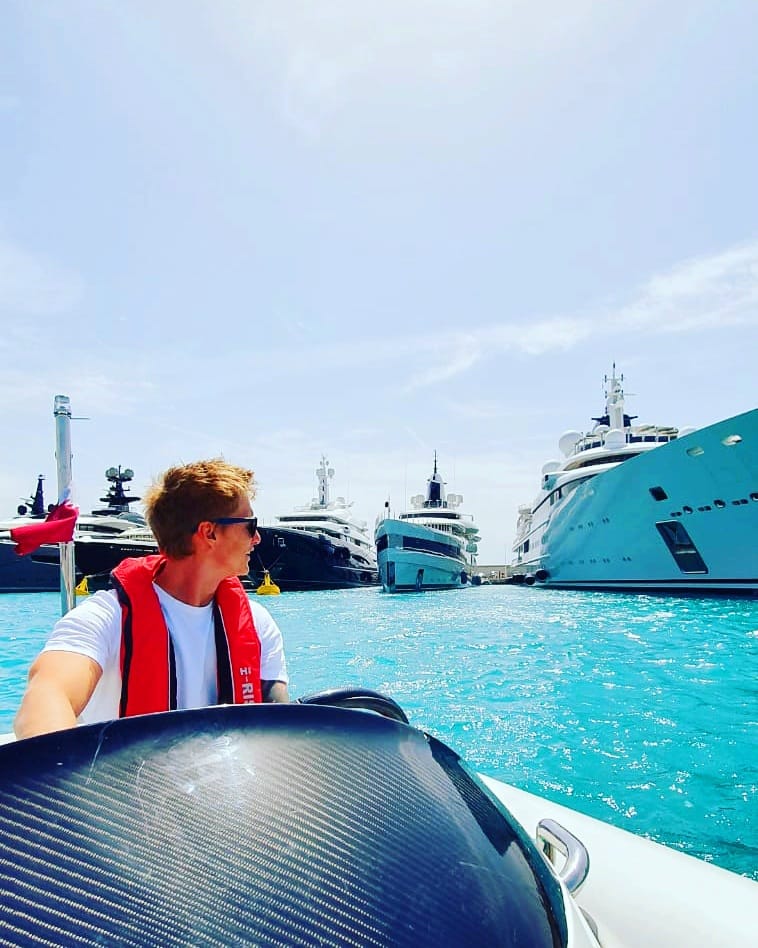
Yacht Deckhand Premium STCW

Yacht Stewardess Premium STCW

Yacht Stewardess Full STCW

Superyacht Deckhand Full STCW

STCW Training in Holland- A Comprehensive Guide

Top 10 best places to find a Yacht job in the Med 2024?
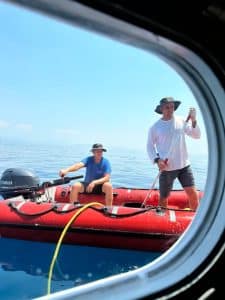
How Much Does Yacht Crew Make?

Top 10 Benefits of STCW Course Netherlands

Yacht Stewardess Training in Amsterdam

Yacht Crew Courses for Holland: Food Hygiene Level 2

Yacht Deckhand Training in United States: Upgrade Your Career at Sea
Superyacht crew training europe.

2024 Dates full. Book Final 4 spot for October date with payment plan “paylater50”
Get free yacht cv and yacht job offers

- Charter & Brokerage
- Yacht Design & New Builds
- Tenders & Toys
- Superyacht Events Calendar
- Career & Training
- Departments
- Superyacht Crew Finances
- Sustainability
- Shipyards and Marinas
- Health & Wellbeing
- Polar Region
- Our Services
- Meet the Team
Top Tips For First Time Superyacht Deckhands
.png)
Would you like to become a deckhand on your first yacht? We asked the crew recruitment company, Quay Crew for their top tips for first-time Superyacht Deckhands.
Deckhands on superyachts hold entry-level positions, and their roles can vary depending on the yacht. First and foremost, amongst other tasks, you will be responsible for cleaning and maintaining the yacht’s exterior, which must always be in perfect condition. The role isn’t luxurious, but the benefits that come with it certainly are.
Superyachts look for employees who have a good attitude, are willing to work hard, and like to work in a team; if you possess this type of attitude you’re well on your way to becoming a successful Superyacht Deckhand.

1. Work Hard & Get Some Experience
This may seem counter-intuitive to many, after all, you are looking for a job, but there are lots of things you can do to gain relevant experience that will complement your job search in the yachting industry: Volunteer at a local marine business, contact a local marina and offer to clean some boats or drive some tenders, or see if a local tourism business, hotel, or conference centre has an opportunity for some part-time work.
2. Network & Dockwalk
When you arrive in Antibes, or Palma, ready with your CV in hand to go dockwalking, make sure you have a plan of action ahead of time. Find out where most of the yachts are berthed and be sure that you approach the vessels at an appropriate time of day (especially lunchtime). Be professional and respectful of the time pressures and schedules of those working on board. Identify local organizations where you can network and don’t forget to investigate nearby, lesser-known ports and yards where you can network as well.
3. Stay Positive & Diligent
Don’t expect to get a call offering you a job after your first day walking the docks. A job search can be a challenge particularly when you are far from home without your support structure around you to help you. Be diligent and determined and remember to stay positive. Be prepared for lots of rejection and don’t expect to get a job in the first week (or even the first month).
4. Get Your CV Ready

Generally, unless you have something amazing listed on your CV which makes you stand out, a job search in yachting won’t come easy. Basics are key for preparing a CV for consideration. The layout or style isn’t necessarily important (albeit it should present well) but make sure it is well written. (Grammatical and spelling mistakes will do you no favours!). Check it, and then check it again. If you don’t take the extra time to have your CV correctly written, then your CV will go straight into the ‘don’t consider’ pile.
5. Avoid Saying: ‘I Want To Be A Captain!’
If this is your first job in yachting, please don’t put in the objective: “I want to be a Captain!”. Be realistic, honest, and humble. That will get you much further than trying to over impress.
6. Practice. Don’t Wing It
Take the time to practice answering interview questions you will probably be asked during a job interview. This will help give you the opportunity to prepare and practice answers, and it will also help calm your nerves because you won’t be scrambling for an answer while you’re in the interview hot seat.
7. Get Your Tickets & Certifications In Order
You should look into getting the basic certifications together before starting a job search. That means the STCW, PB L2, and ENG 1. Having your PWC ticket would be useful as well. However, avoid spending thousands on a week-long class that covers painting, varnishing, PBL2, line handling, and GRP Repair. These courses are superfluous; in the past 5 years, we have never had a request for an entry-level deckhand with these certificates. Get the basic tickets, and then save the rest of your money and invest it in traveling down to France or Spain to look for work.
8. Be A Dayworker
Daywork is a great way to get some experience onboard and pick up a few of the basics of how to be a deckhand. And the bonus is that after a few days of work, you will have a great reference to take away with you for your job search. Work as hard as you can, and treat every day like it is a day-long job interview. It can also help keep you afloat cash-wise while you are looking for permanent work.
9. Be Careful With Your Cash
It can be tempting to spend all your hard-earned money on a Thursday night at the Blue Lady Quiz in Antibes but resist it. Remember you are making an investment in your future, and the money you have could be paying for your rent and food whilst you are trying to secure that elusive job on board.
If you follow our top tips for first-time Superyacht Deckhands then you’ll succeed in the Superyacht industry. Just remember to prepare for a lot of hard work, but enjoy the process as well! It will take time, effort, and money to get a decent job. Competition is fierce, but with the right mindset, you can make it happen! Good luck!
Deckhand Duties Insight
For a superyacht departure, watch this:.
Video by Triston Mortlock – Superyacht Captain
This article was originally published by Anne Spyropoulos in 2017. Repurposed for 2024.
To keep up to date with the latest Superyacht Content News, click here .
Sign up to our Newsletter below:
Newsletter Signup
- Your Name First Last
- Your Email *
Anne Spyropoulos
Related articles, life after yachting: sarah diggle-whitlock from seas the day, how does superyacht insurance work, anyway, top tips & tricks for yacht stews & stewardesses, 5 crew-specific courses you can take anytime, anywhere with maritime training academy.

Popular Posts
- It’s Been A Long Ride But Oceanco’s Alfa Nero Finally Has An Owner
- Superyacht Turnaround: 5 Tips And Hacks For Crew
- Weathering the Storm: How Superyacht Crew Prepare for Rough Seas
- Five Stunning Destinations for a Superyacht Charter
- 2022 Yachting Events: Meet The AYSS Global Network Of Yacht Agents
Superyacht Content
Social media influencer and digital brand expert.
Superyacht Content brings you the latest in social news for the superyacht industry.
Keep up to date with us across our social channels, and don’t forget to hit that share button!
- Superyacht News
- Superyacht Jobs
- Superyacht Marketing
Join our Newsletter
Copyright © 2023 Superyacht Content | Website Design by Zonkey
Privacy | Credits | Get in Touch

Get Onboard
Superyacht Training

How to Get a Deckhand Job on a Superyacht?
Traveling then working on a Superyacht could be perfect career for you. It’s no surprise that Super yachts spend all of their time in the sunny parts of the world. Generally, yachts spend the summer cruising around the Mediterranean and winter in the Caribbean.
The competition for deckhand jobs is getting fierce. There are some essential crew training certificates you must hold before you can get a deckhand job on a luxury yacht are:
1. STCW Basic Training
The STCW stands for Standards of Training, Certification and Watchkeeping. The STCW’2010, previously referred to as STCW’95, forms part of the basic safety training and is a compulsory requirement for any seafarer in order to be eligible for employment at sea. The STCW 2010 has replaced STCW 95 and is the new code that all seafarers working on board commercial vessels must adhere to should they are want to work at sea.
If you are planning on joining the super yacht industry to look for a yacht job as a stewardess, deckhand, engineer or chef, you will need to complete this STCW course.
2. ENG 1 (Seafarers Medical Certificate)
The ENG1 Medical is a basic medical certificate and is as essential as your STCW’10. It is a mandatory requirement to prove you are fit to work as a yacht crew member at sea. Only MCA-approved doctors can perform an ENG 1 medical exam
However Captains are now looking for that little bit extra, whether it’s a skill, a background in carpentry, experience with water sports, jet skis, power boats, sailing background, etc.
Tips to Become a Yacht Deckhand
How do I stand out as a Deckhand from the rest of the yacht crew? There are a number of things people can do to increase their chances of finding work as a yacht deckhand on a super yacht, for example having experience in any of the following mentioned tasks would be a distinct advantage over other entry level deckhands looking for a crew position.
Additional Superyacht Deckhand Courses:
1. MCA Yacht Rating Certificate
2. RYA Day Skipper
3. Powerboat Level 2
4. PWC Ticket
5. Mechanical skills
6. Scuba Diving and any other water sports instructor tickets (e.g Kite Surfing)
7. VHF/SRC Radio Operators Certificate
8. Exterior Maintenance such as varnishing, painting, fibreglass works, carpentry skills etc.
9. Photography or Drones are great hobbies
10. Personal Trainer qualifications
11. Navigation and Boat Handling skills
12. Carpentry, Mechanical and Engineering Skills
How To Become a Deckhand With No Experience?
If you have no experience in the super yacht industry, the first thing you will need to do is invest in our “Beginners Guide to Yachting” ebook. Having no experience doesn’t mean that you can’t ever land a Deckhand job. Captains have, in the past, hired crew with a variety of backgrounds such as Hospitality, Cruise Lines, recent Graduates, Mechanics, Engineers, Divers and anyone who can prove they have the willingness to learn with the right work ethic. Check out our article on how to find a job with no experience.
How much do I get paid to work on a Superyacht
Yacht salaries start from €2,000 a month for Deckhands and Stewardesses, rising to €4,000+ for more senior roles on luxury motor yachts. You live onboard the yacht so there are no living expenses. Meals are prepared by the Chef onboard, and you very rarely need to buy any groceries or toiletries. Read our guide how much you can earn working on super yacht.
What’s next?
The biggest quality the Superyacht Captain looks for is attitude. If you have a good, positive attitude then you will go far. Get Onboard Superyacht Academy can provide all the qualifications and skills you need to get going including detailed information on our Deckhand Course.
If you require additional advice on how to get a job as a Deckhand on a superyacht, please don’t hesitate to send us an email .
Needing more?
Error: Contact form not found.
RYA/MCA Online
1. what are the basic requirements you need to be eligible to work in the yachting industry, 2. what is the stcw and why do i need it, 3. what is the eng1 medical certificate, 4. what land based experience will help me find a super yacht job, 5. what are the different departments onboard, 6. what crew training is required for me to work as a junior deckhand.
- Yachtmaster/Coastal Skipper Theory
- Yachtmaster/Coastal Practical
- Specialist Super Yacht Training Course (Deck Hand Training Course)
- RYA Power Boat Level II
- RYA Personal Watercraft Course
- RYA Competent Crew Certificate
- RYA Day Skipper Theory and Practical Certificates
- VHF Radio Operator’s License
7. What crew training is required for me to work as a junior stewardess?
- Stewardess Course
- Proficiency in Designated Security Duties (PDSD)
- MCA Food Safety Level 2
- RYA Powerboat Level 2
8. How do I book my training courses?
9. how do i get my first job on a yacht, 10. are these courses worth it, or am i just wasting my money, 11. will i get hired for my first job from south africa, 12. what is daywork, 13. what are the best locations to get a yacht job, 14. how much can a motor yacht stewardess or deckhand earn, 15. what are the negatives of working on a yacht, 16. what are the positives of working on a yacht, 17. is working on a super yacht for everyone, 18. what is the minimum age to work on a yacht, 19. is accommodation provided when i am completing my yacht training in cape town.

IMAGES
VIDEO
COMMENTS
Yacht Deckhands have 0-3 years experience and are responsible for the Cleanliness of the yacht-wash downs, stainless polishing, waxing. They earn $30K - 38K based on yacht size & experience. ... A deckhand is a position aboard with primary duties including cleaning and maintenance of the exterior of the vessel. Vessels will usually consider a ...
Cleaning: Keeping the yacht spotless is part of a deckhand's daily duties; this includes washing the deck, hull, and superstructure to maintain the vessel's appearance. Operations: A deckhand assists with the operation of the yacht, which covers handling lines, anchoring, and assisting in navigational watches. Skills and Attributes Required
1. Understand the Training Requirements. The foundational step to becoming a deckhand in Australia is to complete the necessary safety training. While the training is broadly similar across different countries, there are specific requirements for those intending to work on commercial vessels within Australia:
A deckhand is a crew member aboard a ship, boat, or barge who is responsible for performing a variety of tasks to ensure the vessel operates smoothly, efficiently, and safely. These tasks include handling ropes and moorings, maintaining the cleanliness of the vessel, assisting in navigational watches, and participating in safety operations.
A deckhand is a junior crew member on a boat or large ship. Being aware of your surroundings is crucial, as you work with lines and other equipment, being a part of the team that brings the ship alongside dock, or that maintains sea safety and lifesaving equipment. An essential Deckhand requirement is understanding the structure and hierarchy.
Your duties and responsibilities as a deckhand will vary greatly depending on the size of the yacht and how many deck crew members are employed on the vessel. Inexperienced deckhands will spend a great deal of time with cleaning and maintenance duties, such as washing the boat, cleaning windows, polishing stainless steel and scrubbing decks.
The work is extremely varied and an assortment of skills are necessary to be successful. This department is responsible for the following aspects of the yacht operation: The development path for an individual wishing to pursue a career on deck is very specific and requires achieving certain milestones. As an entry-level deckhand, focus should ...
A Yacht Deckhand is an entry-level position for those looking to work as a part of the Deck crew team onboard a yacht. Deckhands are an integral part of the yacht crew in the day-to-day running of the yacht. They are responsible for the daily maintenance of the yacht, involving hands-on tasks to ensure it remains in immaculate condition for all ...
Working in a team while learning from experienced crew members is the key to becoming a successful deckhand. Duties change depending on the yacht's schedule. This results in a wide range of responsibilities with emphasis on the cleanliness of the vessel, tender driving, lookout duties and general maintenance. Find out more about the role of a ...
One way to break into crew work is by getting real-world experience in the maritime world, adds Hollingshead. "Go and get a job in a marina, work for a boat-building company, learn about teak, painting, epoxy, etc. 10 Tips for Newbie Deckhands. "There are two main work/life experiences that I value in a candidate," he continues.
The primary duties of a deckhand are shared between the maintenance of the yacht exterior and looking after the guests. Maintenance tasks include painting, filling and fairing as well as 1- and 2-part varnishing jobs, plus all other cleaning, polishing and scrubbing duties.
A Deckhand's salary ranges between €2,000 to €3,500 a month, though the average is €2,500. Almost all Superyachts pay is in Euros. The salary can depend on many factors, the main one being the yacht's "crew" budget. The owner or management company will agree on a budget that the captain uses to hire crew.
Mandatory Qualifications for Becoming a Yacht Deckhand. If you are looking to become a superyacht Deckhand, you will need to have an STCW Certification and pass an ENG1 medical. ... It also teaches maintenance routines, steering, duties of the lookout, and the responsibilities of crew members under the Code of Safe Working Practices for ...
Deckhand Responsibilities. Most of the deckhand responsibilities include ensuring everything on the vessel is clean and in good working condition. When you're starting out as a new deckhand, you can expect to spend a lot of time cleaning, handling basic maintenance tasks, and keeping watch. Deckhands work under the supervision of the vessel ...
A Deckhand with more experience could expect a salary of €2,500+ per month. There are several factors determining a Deckhand's salary including past experience, qualifications and extra skills. Having qualifications such a Dinghy Instructor or Divemaster could make you more employable, especially on bigger yachts where they tend to have a ...
The exact nature of a Deckhand's responsibilities varies widely depending on the company and type of boat. Deckhands may also be hired at various levels, with senior crew overseeing others and administrative processes, while the duties of a Deckhand at lower levels may be more menial in nature.
Cleaning / Washing. Keeping the decks spotless will always be one of the primary duties of any deckhand. This includes. washing down surfaces, scrubbing decks, and ensuring that all areas are kept clean and tidy at all times. Having a clean deck is essential for various reasons. Firstly, it helps with safety on board.
The Deckhand position is perfect for sporty, sea-loving individuals that enjoy physical work outdoors. A typical Deckhand is responsible for a clean, orderly yacht exterior and reports to the Bosun or First Mate depending on yacht size and crew complement. The Deckhand carries out lots of maintenance duties such as cleaning, paintwork and ...
YACHT DECKHAND SALARIES. Deckhand salaries can vary slightly, depending on the size and type of yacht. Data shows that deckhands on a motor yacht earn between €2,000 and €3,000 a month, depending on the size and their experience. Deckhands working on sailing yachts may earn a bit less, between €1,800 and €2,900 a month.
The duties and responsibilities as a yacht deckhand vary depending on the size of yacht and number of crew on the yacht. With your first position, you can expect your duties to consist of learning the basic duties of a deckhand, including washdowns (cleaning the yacht from top to bottom), cleaning windows, polishing stainless steel and ...
4. Tips for Landing Your First Deckhand Job on a Vessel. Securing a position as a deckhand on a vessel can be a challenging yet rewarding experience. Networking is crucial in this industry, so make sure to attend boat shows, yacht clubs, and marinas to meet potential employers and other professionals in the field. Additionally, consider joining ...
Would you like to become a deckhand on your first yacht? We asked the crew recruitment company, Quay Crew for their top tips for first-time Superyacht Deckhands. Deckhands on superyachts hold entry-level positions, and their roles can vary depending on the yacht. First and foremost, amongst other tasks, you will be responsible for cleaning and
The primary duties of a deckhand are shared between the maintenance of the yacht exterior and looking after the guests. Maintenance tasks include painting, filling and fairing as well as 1- and 2-part varnishing jobs, plus all other cleaning, polishing and scrubbing duties.